Curator of Collections and Special Projects, Crawford Art Gallery
The Athens of Ireland: Art, Literature and Patronage in Cork's Golden Age.
Cork in the 1810s and 20s has been described as a ‘Periclean moment’ in the city’s history, not least because the period gave rise to a flourishing of literature and visual art. The fluctuating economics of the time meant that this burst of creative and cultural production was short-lived, but a voracious reading public, the arrival of the ‘Canova Casts,’ and patronage of certain ‘merchant prince’ families temporarily aligned to the mutual benefit of artists, writers, and the public. Join Dr Michael Waldron for this fully-illustrated lecture featuring the art, literature, and prominent people of early nineteenth-century Cork.
Historian and Author
How Dutch is the Mardyke? The Development of Public Recreation and The Cork Public Museum Building
In June 2019 King Willem-Alexander and Queen Máxima of the Netherlands visited Cork city. At the time it was stated that the Dutch engagement with Cork in the eighteenth century ‘is still evident in the architecture of the city’ and that the ‘reclamation of Cork’s marshlands and construction of new stone buildings, quays and waterways was influenced in no small way by the expertise of Dutch civil engineers’. Drawings and paintings of the city, in the collection of the Crawford Art Gallery, were stated in justification of these claims. It was not the first time that these facts had been asserted, but what evidence exists for these Dutch links? By examining Cork’s Mardyke in particular, this paper attempts to trace the architectural relationship between Cork and Low Countries in the late seventeenth and early eighteenth centuries and draws largely on primary documentary sources, but also seeks to use buildings and art as historical sources too. Through a thorough examination of the contemporaneous structures in the city as well as uncovering modernised buildings that retain elements from the period, it aims to visually rebuild our image of Ireland’s ‘Dutch’ city. This talk will show that whilst there are significant similarities between early-eighteenth century Cork’s topography and architecture and that of Holland, significant research will be required to justify the popular urge to imbricate Cork within a Dutch sphere of design influence.
Dept of Archaeology, UCC
'Robert Day, William Randolph Hearst and Tom Waits': The Story of an Irish Viking Hoard
Even though Ireland’s Viking Age silver hoards are interesting, this lecture will not explore these in the normal archaeological way. Instead, the focus will be on the facinating story of a single hoard from Kerry and how its ownership changed over the past century and more. The story involves a notorious land agent from Kerry, Robert Day of Cork, William Randolph Hearst, the controversial American businessman, and even, in a roundabout way, Tom Waits, the American musician and songwriter.
Local Historian and Author
Trams on the Streets of Cork
The talk on Trams through Cork will deal with the early horsedrawn trams of 1872 and why they failed after just 3 years. This will be followed by the evolution of Cork’s first silent transport, the electric tram system of 1898 operated by the the Cork Electric Tramways and Lighting Company until its demise in 1931. The lecture will be complemented with a series of rare images and tram tickets covering the period.
Former Curator of Photography, Museum of London.
A Photographers Perspective of Cork
As well as being Curator of Photographs at the Museum of London, I was also a photographer of London from the early 1980s on. I moved to Cork last year and my talk will focus on my experiences of photographing here compared with those I had documenting London. I will be sharing my thoughts on what I perceive to be the similarities and differences between the two cities.
Cork City Archaeologist
Beneath the Streets. Archaeology and Cork City.
From prehistoric to modern there are 430 archaeological monuments located within the administrative area of Cork City Council.
All these sites are important as they inform where we came from and guide where we might be going. In her role as City Archaeologist Ciara Brett manages and protects the archaeological heritage and will detail ‘a day in the life’ of her job and will discuss some recent archaeological discoveries in the city.
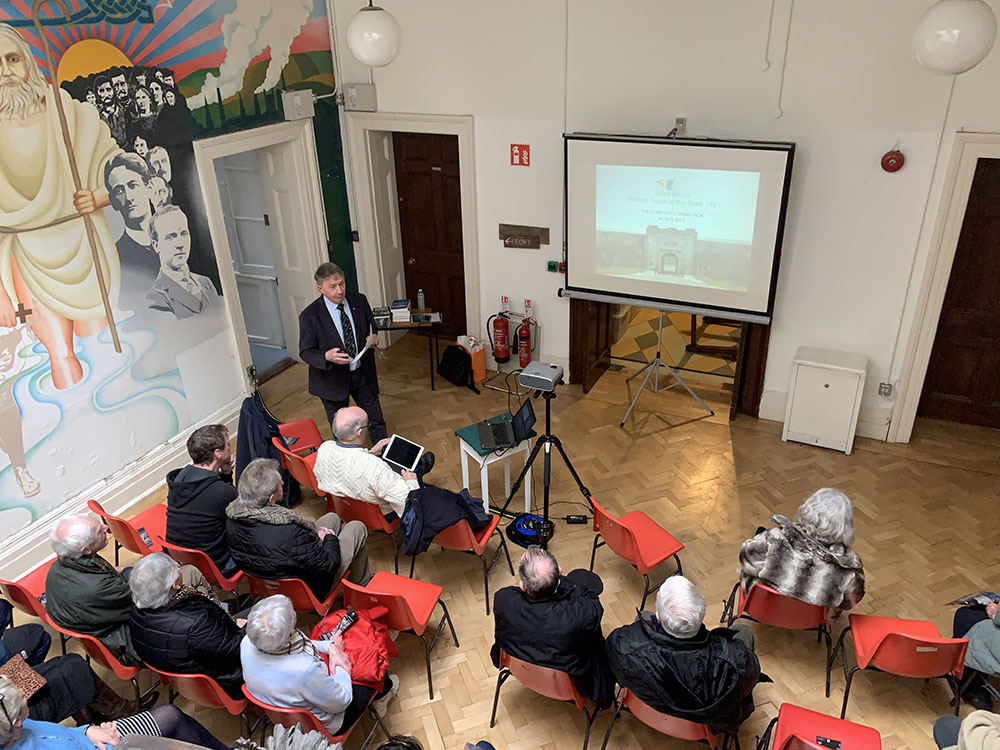
(Above) Historian and author, Tom O'Neill giving a lecture on Spike Island and the prisoners of 1921, Dec 2023.
During the recent Decade of Centenaries initiative, Cork Public Museum hosted numerous exhibitions, talks and events that dealt with all aspects of Cork’s revolutionary period (1913-1923). The museum, like other institutions across the city, was responding to the wider public’s appetite and desire to better engage with, and understand, the people and events that shaped the history of Cork at the time. However, this was not always the case in the museum’s nearly 80-year history, when many subjects and topics were often ignored or deliberately underrepresented in the museum’s storerooms and galleries.
In the last of our Winter Lecture Series, Museum Curator, Daniel Breen will explore the reasons and motivations behind this ‘selective memory’ and its impact on the museum, its collections and displays. The Great War, the Role of Women in the independence movement and the Irish Civil War are three of the main subjects that did not feature prominently in any exhibitions or form part of any collections policy at the museum until recently.
You are all invited to attend Artefacts of Selective Memory: Collecting Cork’s Material Heritage of 1913-1923 at Cork Public Museum, at 1pm on Saturday, December 16th. The lecture is free, but spaces are limited so it is advised to phone 021-4270679 or email museum@corkcity.ie to reserve a place. These will be allocated in a first come, first served basis.
Cork Public Museum would like to take this opportunity to thank everyone who has come to this series of talks over the last few months. All the speakers have given enjoyable and informative presentations that engaged the audiences, prompting enthusiastic Q&A sessions and drew warm responses from all who attended. This a glowing endorsement of the high calibre of historical research (both amateur and academic) that has been done in Cork over the last decade or so, and the positive impact it will have on the future work we will do at the museum
Thank you from everyone at Cork Public Museum for your continued support and we look forward to seeing you all at our 2024 Lecture Series.
Oct 2023
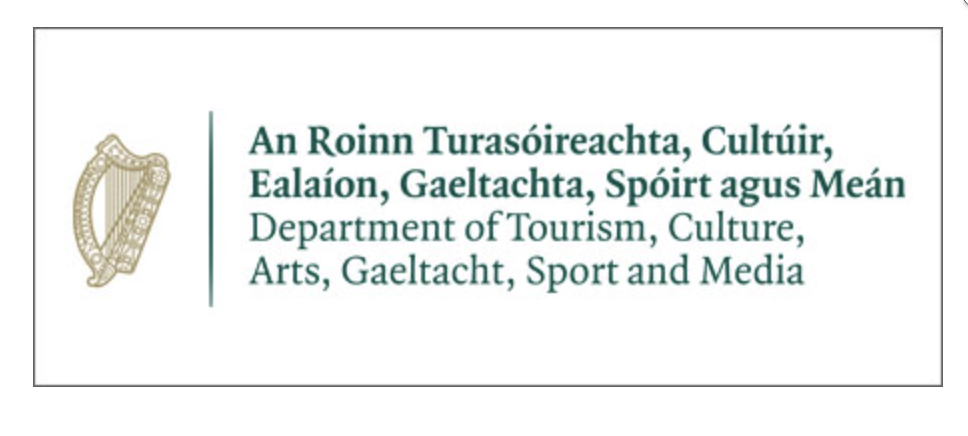
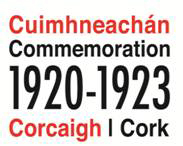
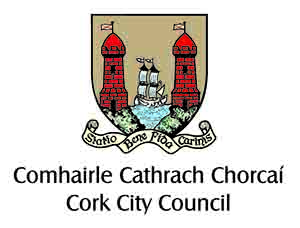

Sept 2023
A night of talks, displays and living history in collaboration with the Cork Branch of the Western Front Association
On 5 October 2023, The Cork Branch of the Western Front Association (WFA) in conjunction with Cork Public Museum will present ‘A Night at the Museum’. During this event, the Chair of the WFA and two other members of the Executive Committee will give talks, members of the Cork branch will provide a research facility, there will also be a display of artifacts from the Great War and reenactors will be available to answer questions about soldier’s kit.
When: Thursday, 5 October, 2023.
Where: Cork Public Museum, Fitzgerald Park, Cork.
Time: 17:00hrs to 21:00hrs
Admission: Free
Speakers and Topics
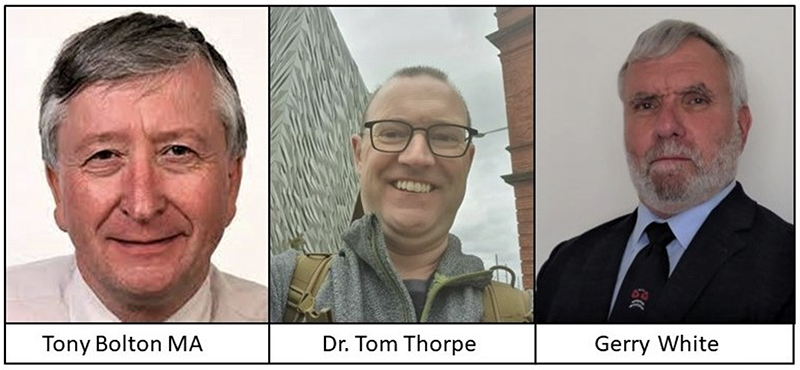
Tony Bolton MA: Invasion Scares from Napoleon to the Kaiser.
Tony Bolton is the chair of the WFA. He is also the chair of its Chesterfield Branch and has been a member of the association almost from its inception in 1980. Tony completed his Masters Degree in British First World War History at Birmingham University in 2014. His dissertation on the Resignation of Austen Chamberlain and the Mesopotamia Commission also received a Distinction. He has also contributed to BBC Radio Sheffield’s Centenary programme, and has given talks to many historical organisations on various aspects of the Great War.
‘Invasion Scares from Napoleon to the Kaiser’, which Tony describes as a bit ‘quirky’, looks at the scares that periodically swept through the UK during the Victoria and Edwardian eras and were mentioned in contemporary literature and newspapers and served a prelude to the Great War. Of particular interest to an Irish audience will his description of what happened in Ireland after a successful invasion as depicted in the pages of the book ‘The Germans in Cork’ by Lady Carbery of Castle Freke, Clonakilty, which was published in 1917.
Dr. Tom Thorpe: The impact of officer attrition and its impact on inter-rank relationships in the 2nd Battalion, Royal Irish Regiment, during the Great War
Dr. Tom Thorpeis an independent scholar, tour guide, and podcaster. He holds a PhD from King’s College London that explored the extent, nature, and impact of small group cohesion in British infantry units during the First World War. He is also a Trustee of WFA and secretary of its Antrim and Down Branch. Added to this, Tom is an avid podcaster, hosting and producing three history podcasts. These are the Western Front Association’s weekly Mentioned in Dispatches Podcast, the Epidemic Belfast podcast, and Combat Morale podcast.
During the Great War, 325 officers served in the 2nd Battalion of the Royal Irish Regiment. This attrition rate meant there was a massive change in the background, experience and social class of officers who served with the unit. Tom’s talk explores this change in officer background, as well as the impact of attrition on inter-rank relations, and how these factors shaped junior leadership, trust in officers and operational effectiveness in the trenches.
Gerry White: Cork and the Great War
Gerry White is a former member of the Irish Defence Forces who served forty-three years in Collins Barracks in Cork. He is the Island of Ireland Trustee of the WFA and chair of the Cork Branch. He has a keen interest in Irish military history from the period 1913 to 1923 He has published a number of books and articles on the military aspects of what proved to be a defining decade in Irish history and has also appeared on a number of radio and television documentaries.
‘Cork and the Great War’ is an illustrated talk that looks at the impact that conflict had on the city and county of Cork. Among the topics it will cover will be the outbreak of the war, how it split the Irish Volunteer movement, the war at sea, Cork VC winners and how those who fell were and are remembered.
Aug 2023
Cork Public Museum will host a series of five evening/nighttime events at Cork Public Museum between August and October 2023 that will bring the museum’s collections and Cork’s history to life with tours, talks, engaging living history presentations, round table discussions and interactive displays/demonstrations. All events will take place between 5-9pm at Cork Public Museum unless otherwise stated. All events would be suitable for all ages unless otherwise stated.
Event 1:Thursday 24th August:
Renowned local historians, Gerry White and Anne Twomey, will explore the revolutionary period in Cork through the museum’s collections, focusing on the men and women who shaped the events from this tumultuous period in Cork’s history. Both historians will present informative talks and provide guided tours through the museum’s War of Independence and Civil War galleries, giving all visitors a sense of what it was like to have lived through such extraordinary times. Museum Curator Dan Breen will then give visitors a brief overview of how the museum manages and cares for its revolutionary collections and will give visitors the opportunity to view some important objects not currently on display.
These events will be run at 5pm and at 7pm and should last about 1 ¾ hours.
Booking is essential as places are limited for both events. Please email the museum at museum@corkcity.ie and state whether you would like to attend the 5pm or 7pm event. Places will be allocated on a first come first served basis.
Event 2: Thursday 14th September:
The museum will host an evening that brings together three leading female scholars to look at the history of women and incarceration in Cork. National Museum of Ireland Mother and Baby Home Co-ordinator, Donna Louise Rose, artist Maureen Considine and writer Rachel Andrews will present a round table discussion examining the history and societal implications of control over the liberties of both women and the family.
Rose is completing an Irish Research Council Enterprise Partnership Scheme Postgraduate Scholar PhD that focuses on the ethical and sensitive development, conservation, management and mediation of the material remains of Ireland’s institutional systems. Considine is basing her PHD research at UCC on the memories and experiences of those inmates in the laundry and industrial schools run by the Good Shephard regime such as Good Shepard Convent in Sunday’s Well. Andrews, a well-known journalist, writer and lecturer has a based her PHD at NUIG on the place of women within the domestic setting.
This event will start at 7pm and should last about 2 hours. This event is not suitable for younger audiences.
Booking is essential as places are limited. Please email the museum at museum@corkcity.ie to book your place. Places will be allocated on a first come first served basis.
Event 3:Thursday 21st September:
On this night, the museum will be invaded by the Roman Empire. Members of the living history group Romans Ireland LEG VIII AUGUSTA will, through a variety of talks, displays, and demonstrations, present an informative and engaging look at what life was like in Roman times. They will portray as accurately as possible as many historically accurate aspects of ROME, and its society with the display of historically accurate reproduction weapons, armour, clothing and everyday objects. Many areas of Roman life will be explored from military to civilian, from food to fashion and everything in between.
This event will complement our most recent exhibition that was launched on June 1st, 2023, entitled Cork and the Roman World.
No Booking necessary.
Event 4:Thursday 28th September:
On this night, the museum will host a living history event where many different eras of Cork’s long and varied past will be explored. Organised in collaboration with renowned heritage expert, Melissa Shiels, the museum will welcome 5 living historians who will present aspects of what life was like in the Hiberno-Norse, Medieval, Tudor and Georgian/Victorian periods. Stationed throughout the museum, the living historians will utilise material from the museum’s collections to inspire their demonstrations on a variety of subjects and topics including, but not limited to, clothing/fashion, crafts/skills, personal hygiene, food/diet and transport.
No Booking necessary.
Event 5:Thursday 5th October:
The final night in the series of events will focus on Cork and the Great War. This event will be hosted in collaboration with the Cork Branch of the Western Front Association. The event will include two talks by two members of the WFA, several display tables of objects and artefacts related to the Great War, as well as a research facility for any members of the public who would like to search their own family’s involvement in the war.
This event will form part of the International WFA Conference that will take place in Cork City between October 6th and 8th 2023.
No Booking necessary though space for the talks may be limited depending on demand.
___________________________________________________________________________________________
Jan 2023
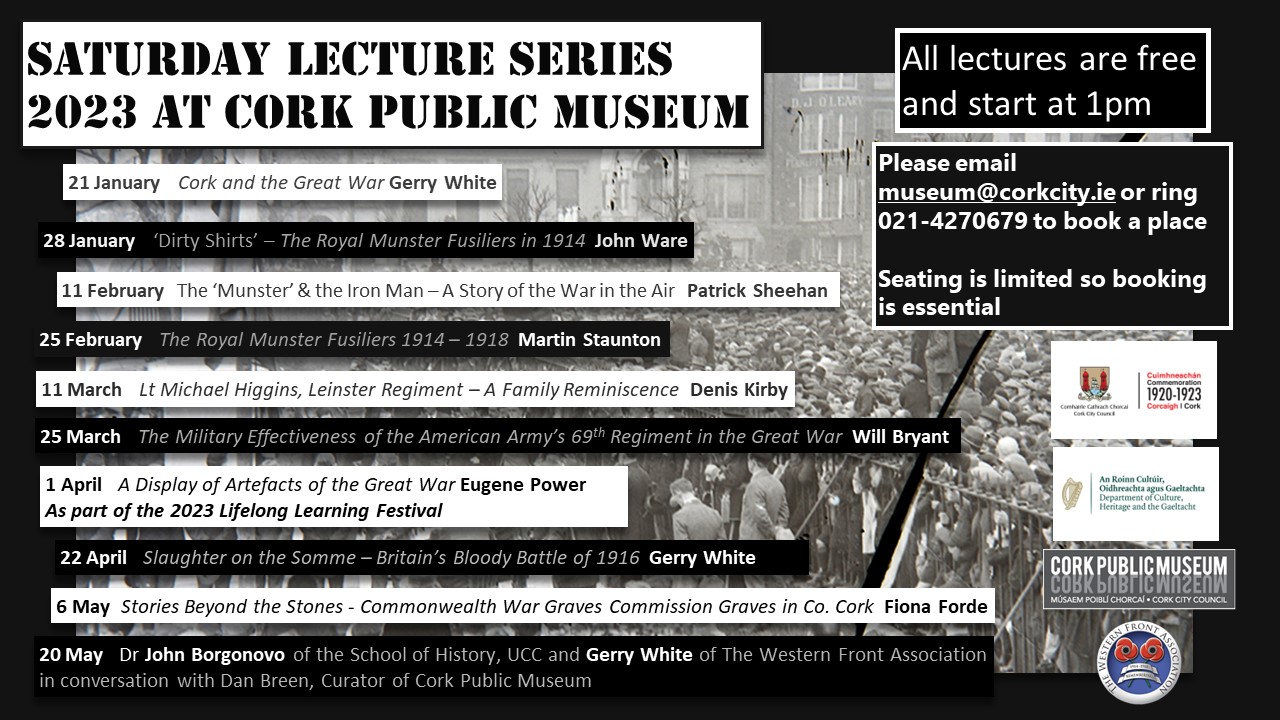
These series of lectures will serve to bookend our Decade of Centenaries programme of events and exhibitions that have dealt with the Great War and its impact on Cork, its people, society and politics. Since 2013, the museum has created a replica First World War Trench (2014-2018), opened an exhibition on the end of the war and its impact on Cork during 1918 entitled Virus, Victory and Votes (2018) and opened the museum’s first ever exhibition on the Royal Munster Fusiliers entitled The Forgotten Regiment (runs until May 2023). We are committed to expanding our Royal Munster Fusiliers Archive at the museum, which was started last year. Cork Public Museum will continue to acquire and research objects and documents related to the Great War and the experiences of the Cork people involved.
Therefore, we are delighted to bring you a great series of talks between January and May 2023. They will be held on Saturdays at Cork Public Museum at 1pm.
All are welcome but booking is essential.
Please contact us at museum@corkcity.ie or 021-4270679 to book your place.
Coming in Autumn/Winter 2023 will be a series of lectures on Cork and the Irish War of Independence/Civil War. Details will be posted later in the year.
From March 2020 (on-going)
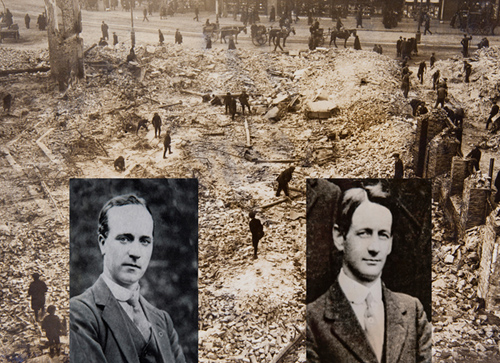
This exhibition tells the story of Tomás MacCurtain and Terence MacSwiney, Cork’s first Republican Lord Mayors. This exhibition will focus on aspects of their lives, achievements, and deaths, set against the backdrop of a country at war and a city in turmoil. The exhibition will also look at events such as the Cork Hunger Strike, the military and political campaigns in the city, the introduction of Martial Law and the series of arson attacks that culminated in the Burning of Cork in December 1920. The civic and military leadership shown by both men will highlight the pivotal role played by Cork during Ireland’s War of Independence.
This exhibition will run until March 2021.
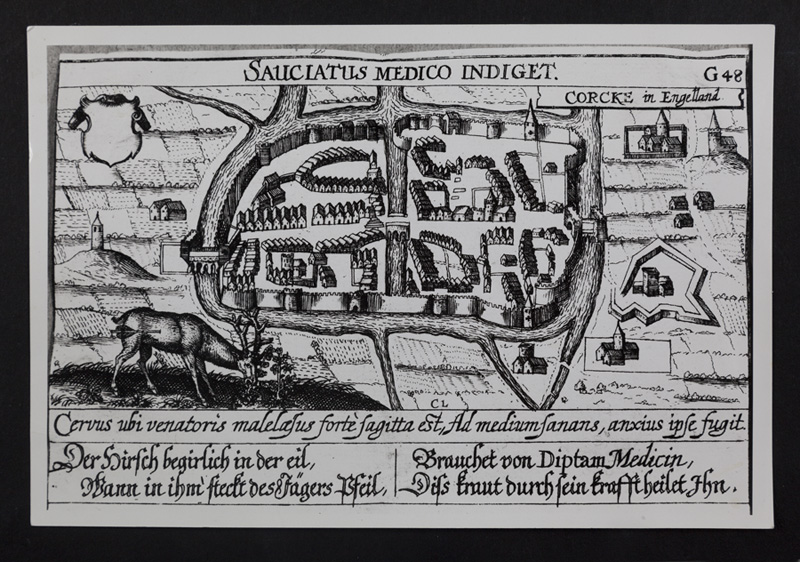
We here at Cork Public Museum in conjunction with the MA in Medieval History at University College Cork are delighted to bring you an online and physical exhibition of medieval objects that have been unearthed at archaeological digs here in Cork City.
As part of their studies, students Emmanuel Alden and David O’Mahony give us a fascinating glimpse into medieval Cork by way of musical instruments, medieval games and symbols of piety
These objects can now be viewed in person at our newly revamped permanent archaeology gallery:
UNEARTHED - Discovering Cork; The City of Trades and Cultures.
This project is funded by Fáilte Ireland, Ireland’s Ancient East and Cork City Council.
![]()
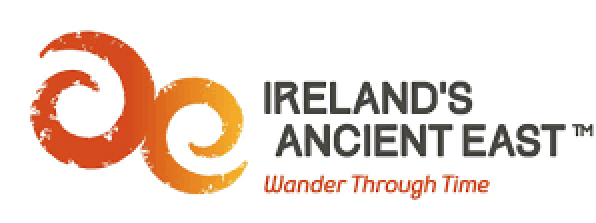 .
. 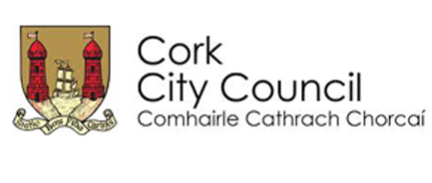
From Sept 2021
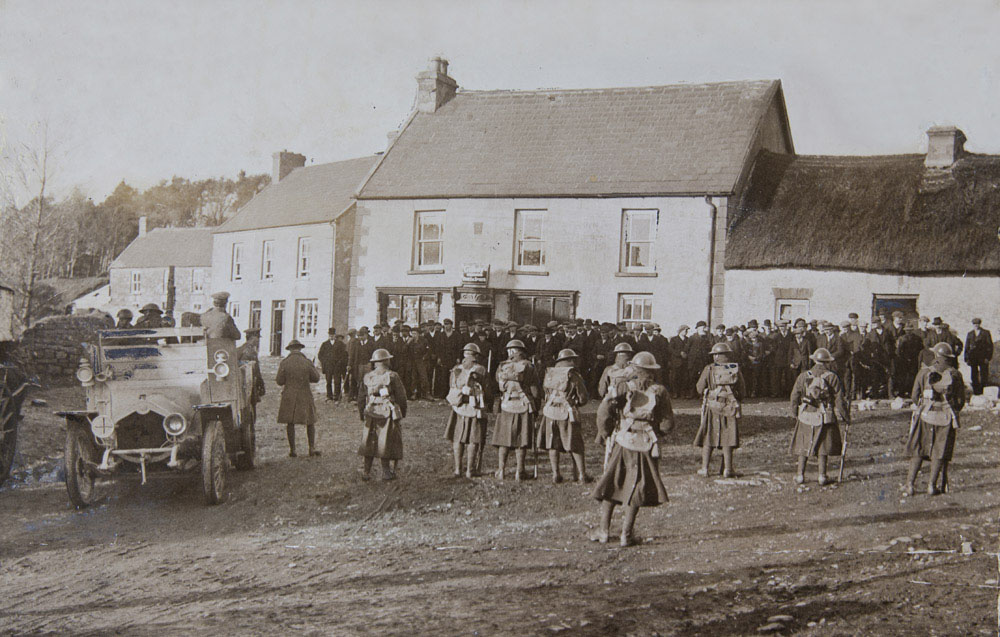
County Cork played a major part in the War of Independence, witnessing a number of military engagements that would go on to have a significant impact on both the nature and outcome of the conflict. Using original artefacts, images and documentation, this exhibition will illustrate the roles played by both the Republican and Crown forces, while exploring their strategies, tactics, equipment and experiences of war.
This exhibition will run until August 2021.
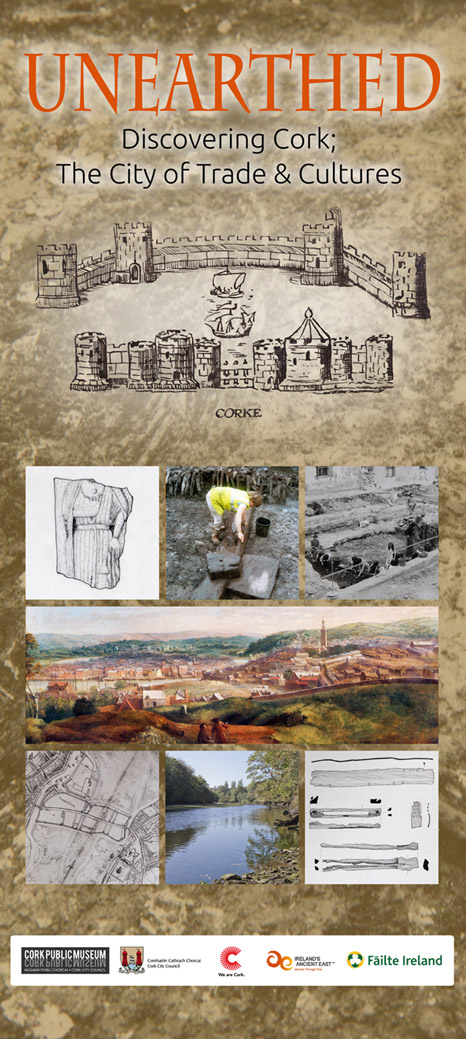
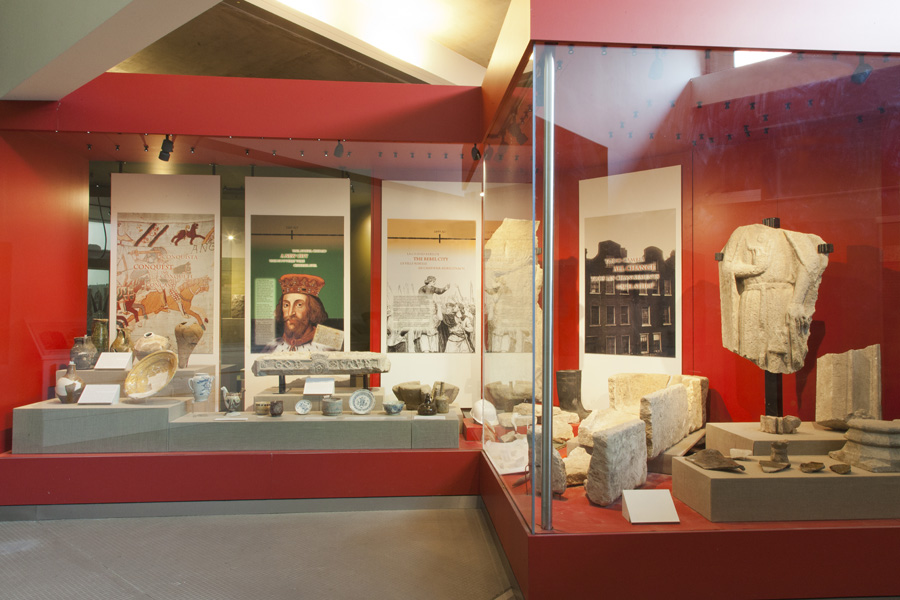 | 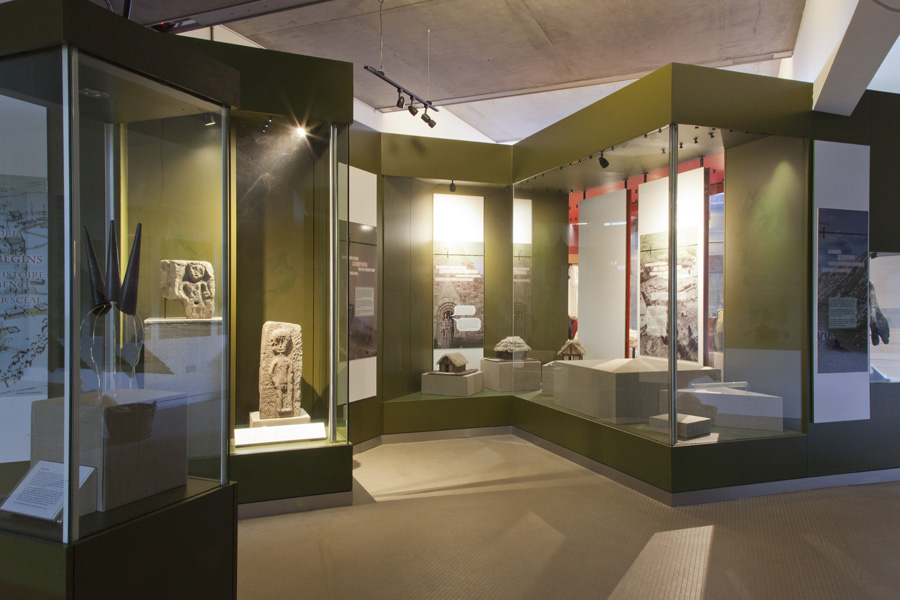 |
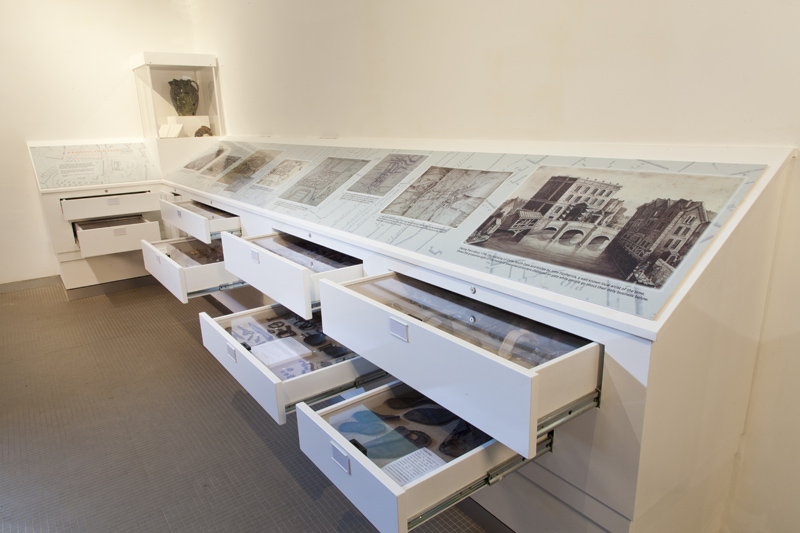 | 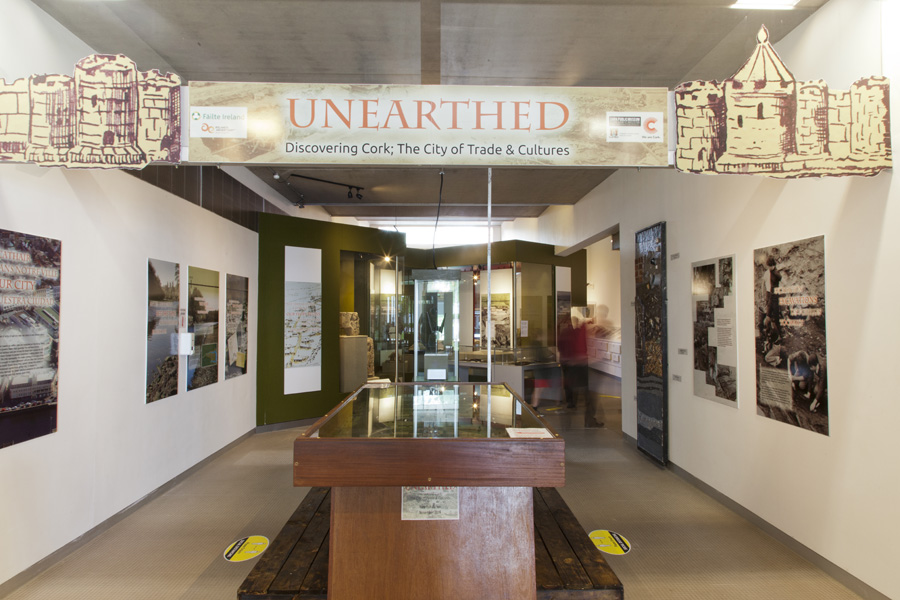 |
In light of the recent important excavations on South Main Street, which have greatly increased our knowledge and understanding of the foundation and early development of Cork City, Cork Public Museum felt it is an ideal opportunity to refurbish and update our permanent archaeological exhibits.
Since the 1970s, urban archaeological excavation and research has opened up medieval Cork to contemporary audiences in ways not previously possible. Through numerous important archaeological excavations, the understanding of the origins of our city and the lives of its inhabitants are clearer today than ever before. Therefore, Cork Public Museum seeks to bring our city’s past to life through the lens of the latest archaeological insights, observations and artefacts combined with up to date historical research and knowledge.
The new exhibition will focus on the themes of 'Trade & Commerce' and 'City of Cultures', utilising various media, including original excavated objects, graphic panels, illustrations, audio/visual and low-budget inter-actives to enrich the visitor experience and reveal stories of Cork city and its earliest inhabitants.
One of the museum’s strongest assets is our archaeological collection, acquired from four decades of excavations in the city. These objects give glimpses into the everyday life and culture of Cork’s earliest inhabitants, and an insight into how they connected with the outside world. They show how the city grew from a marshy backwater into an important trading and commercial centre.
![]()
 .
. 
As part of National Heritage Week, running from the 17th-25tg Aug 2019, Cork Public Museum - along with the Department of Archaeology at UCC and Craft Hands - conducted a fun one-day workshop with children at the museum.
Members of the public were invited to make their own clay vessel, and to learn about how pots can tell us about life in Cork's medieval past.
Staff from UCC were also on hand to demonstrate, with artefacts from the museum’s collection, how pots from all over Europe ended up in this city.
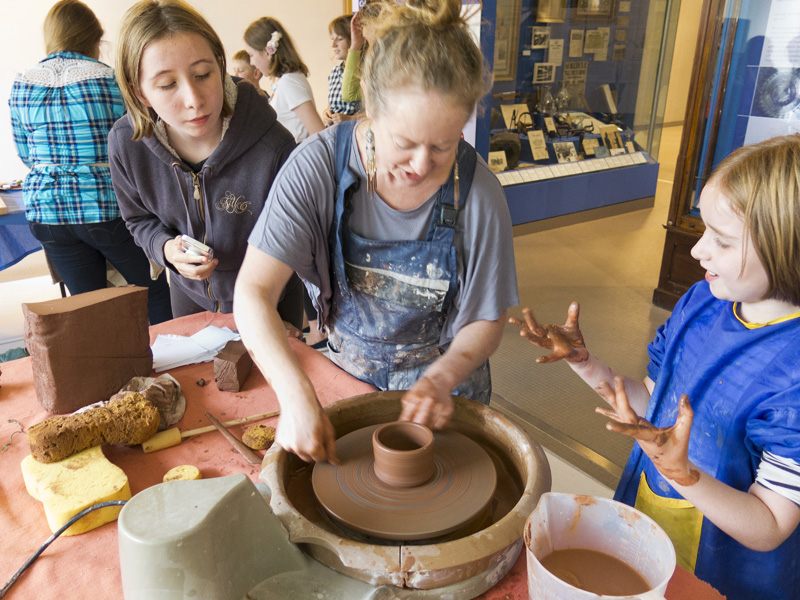 | 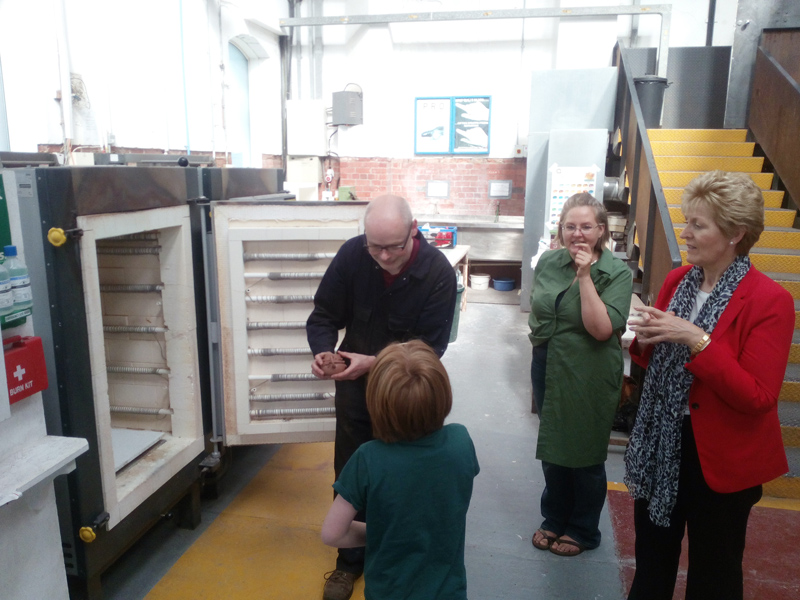 | 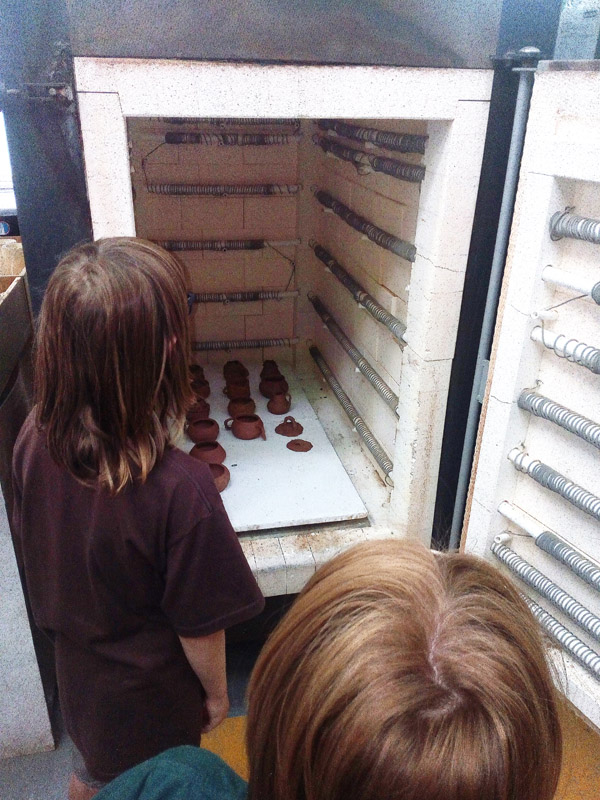 |
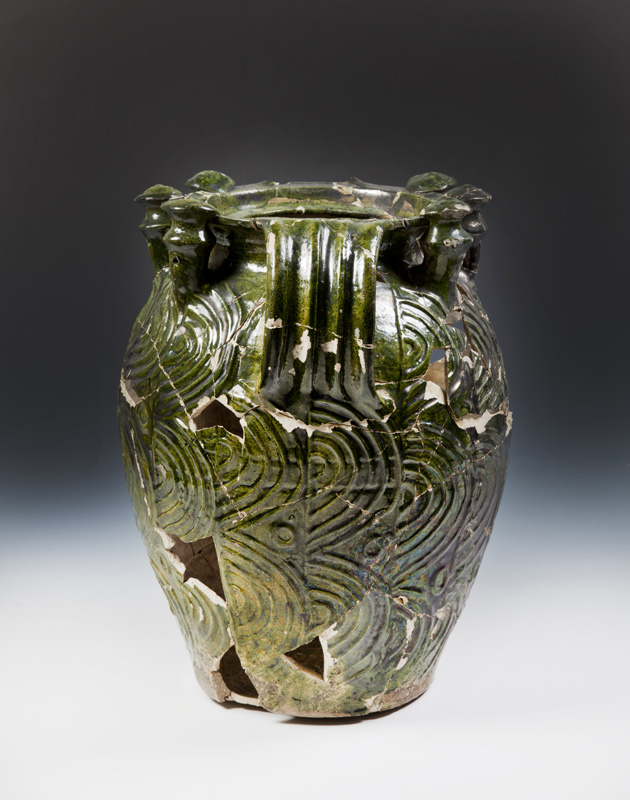 | 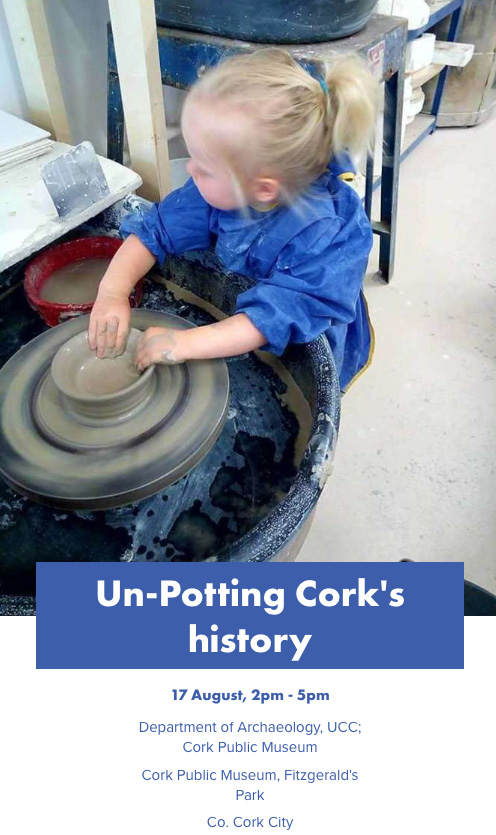 |
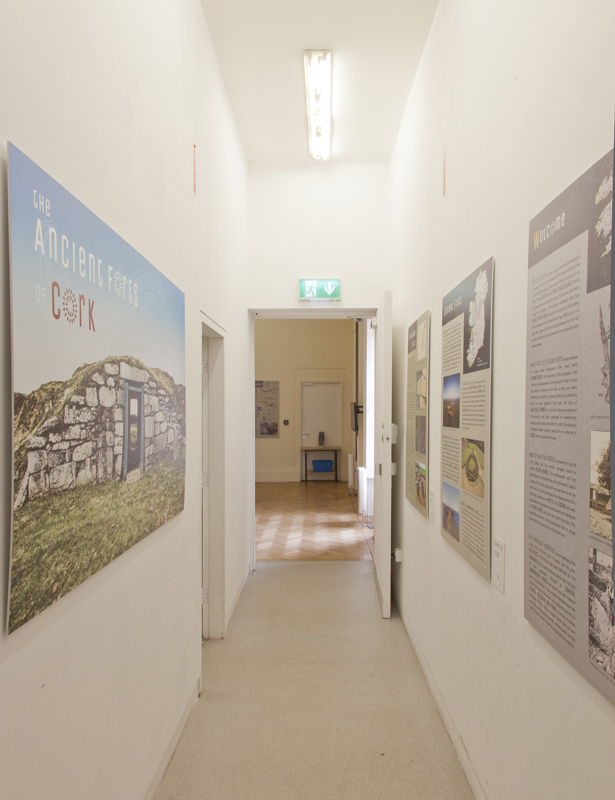 | 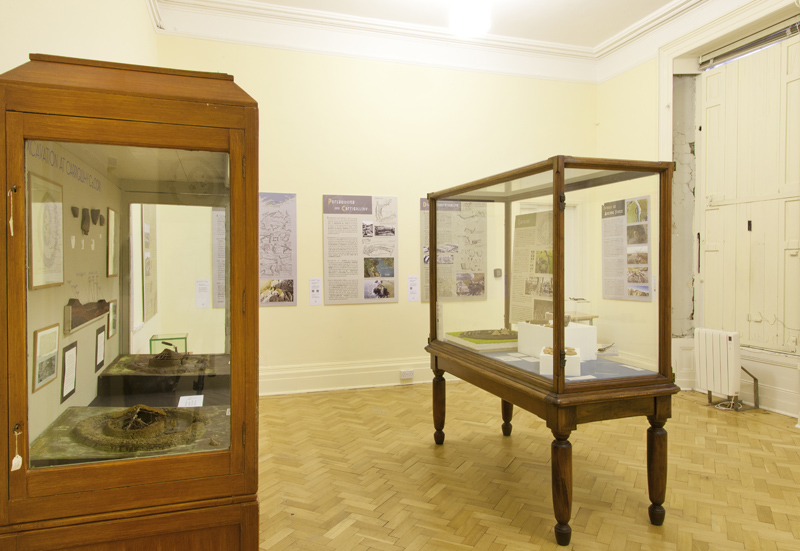 | 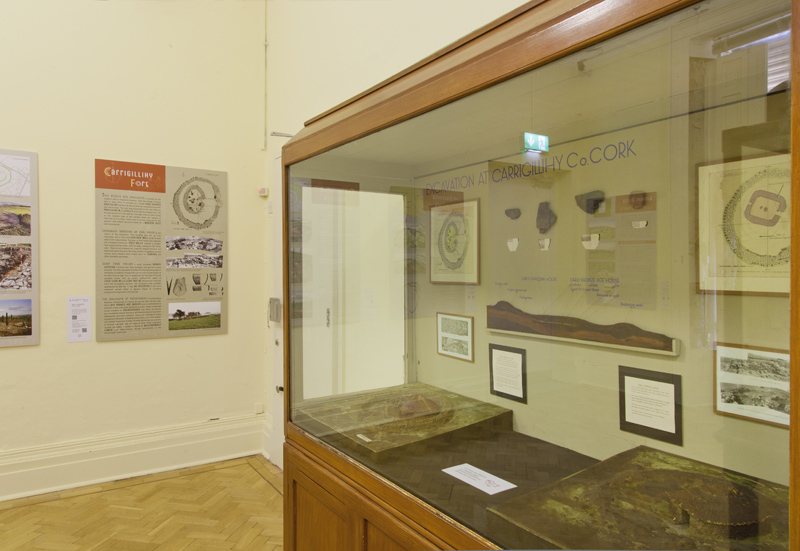 |
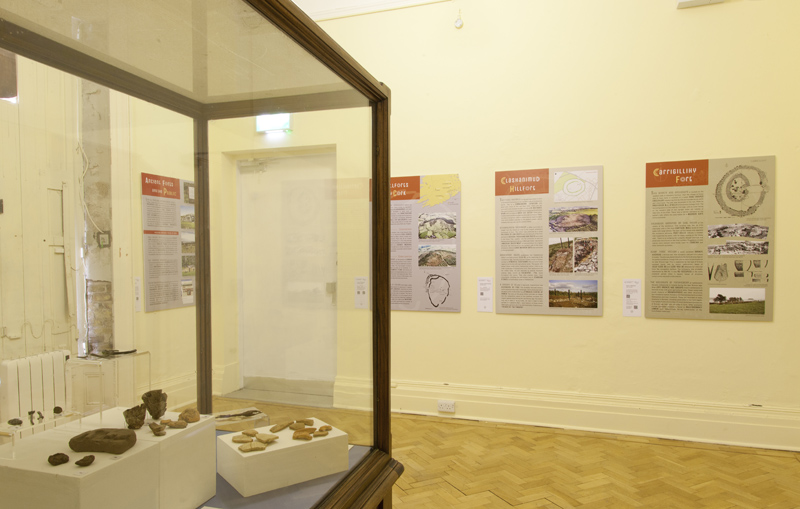 | 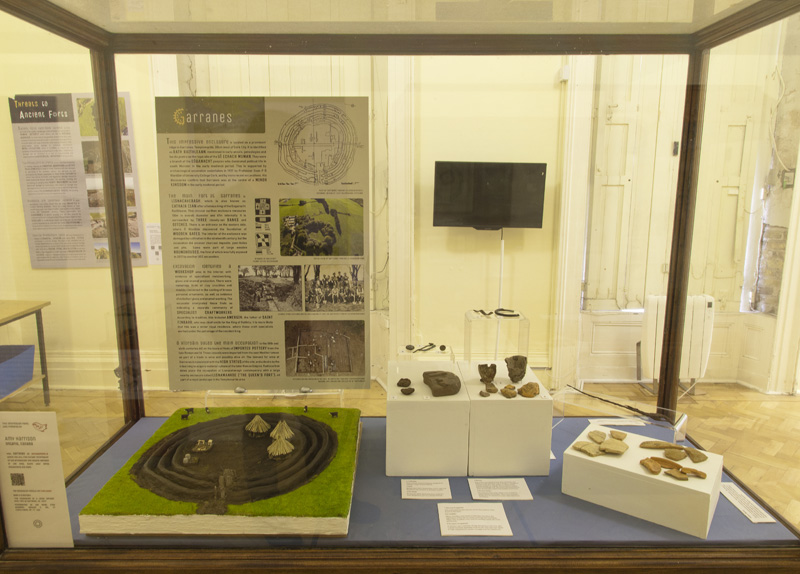 | 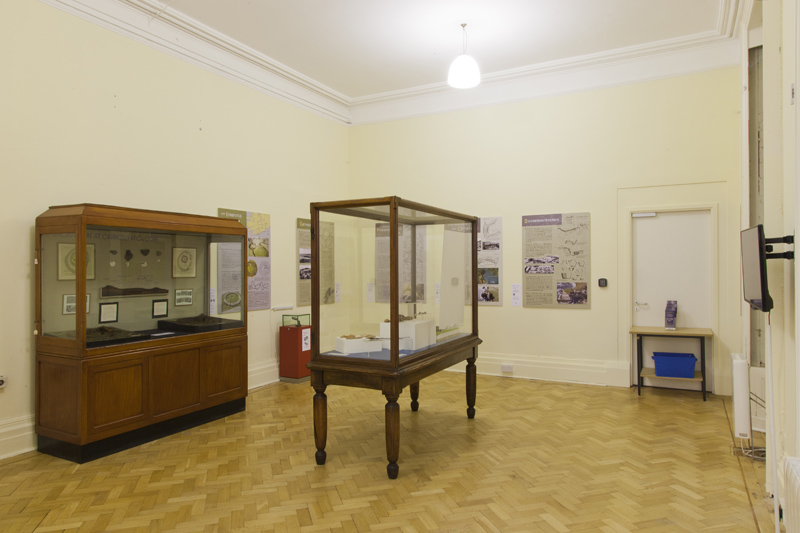 |
The exhibition examines the archaeology of the ancient forts of County Cork. It begins with the great Hillforts of the Bronze Age, dated 1400-800 BC. The ringforts of the early medieval period (AD 400-1200) are then presented, followed by coastal promontory forts that extend into later medieval times. The information in this exhibition demonstrates how ancient forts are an important and vulnerable part of our shared cultural heritage during a time of intense development of the Irish landscape. These sites are best protected by informing landowners and the public of their historic significance.
1918 was a defining year: it witnessed the Allied victory in the Great War and the outbreak of the Spanish Flu pandemic, and it saw the resurgence of the Republican movement in Ireland that led to Sinn Féin's victory in the December 1918 General Election.
The exhibition examines these tumultuous events and the impact they had on the people and history of Cork.
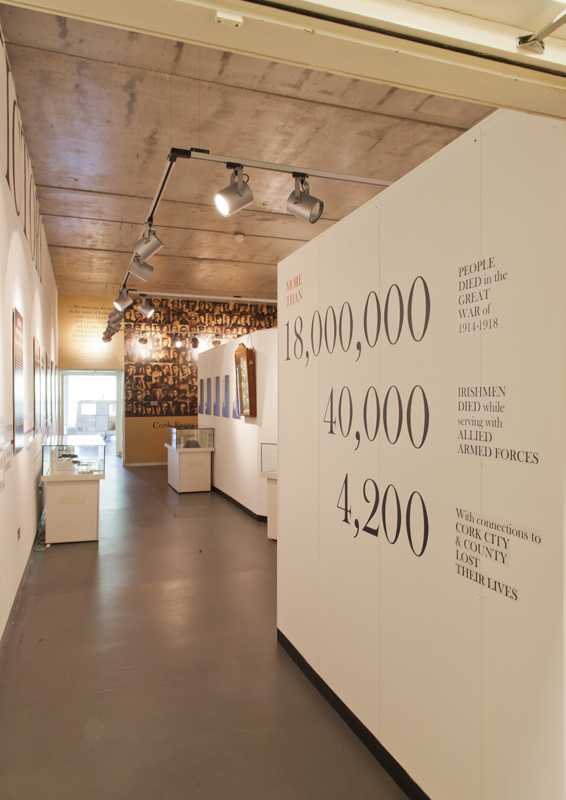 | 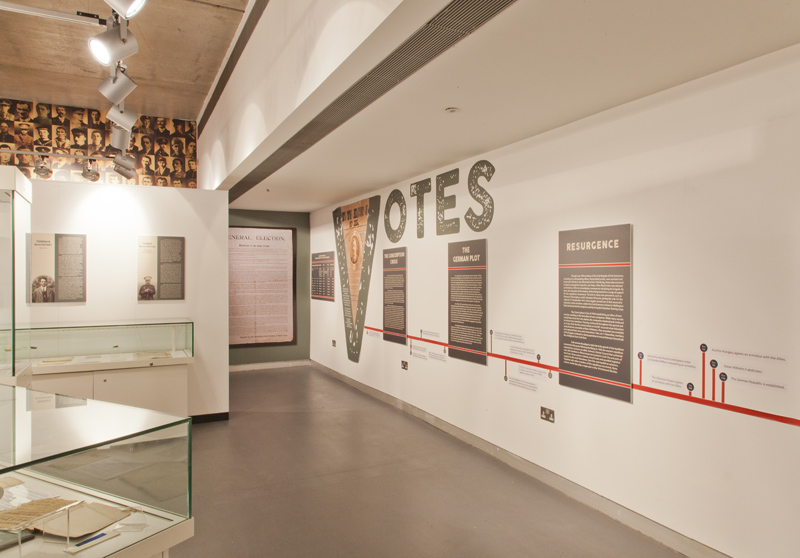 | 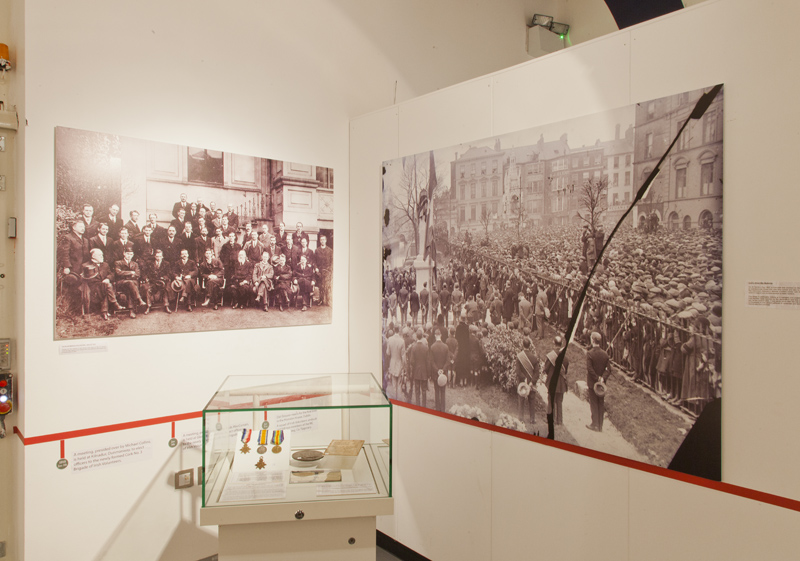 | 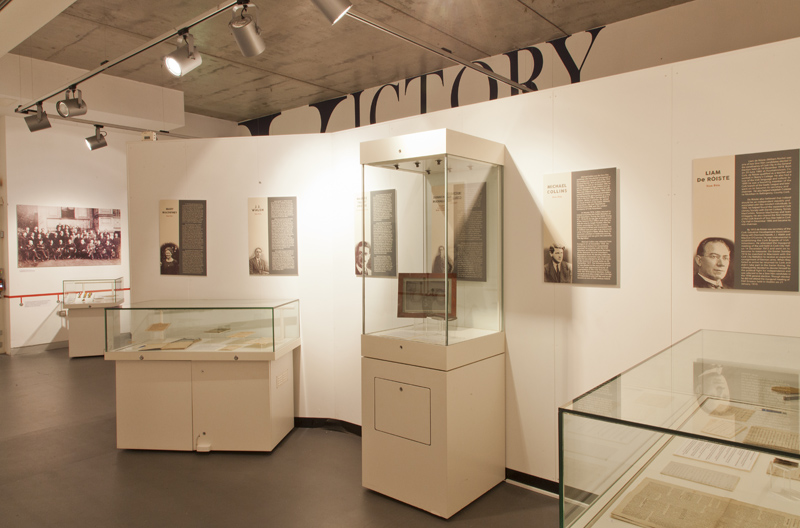 |
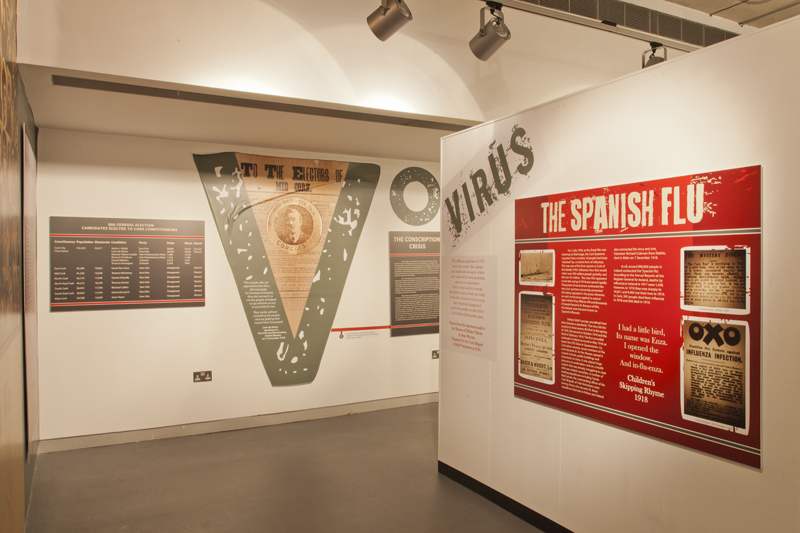 | 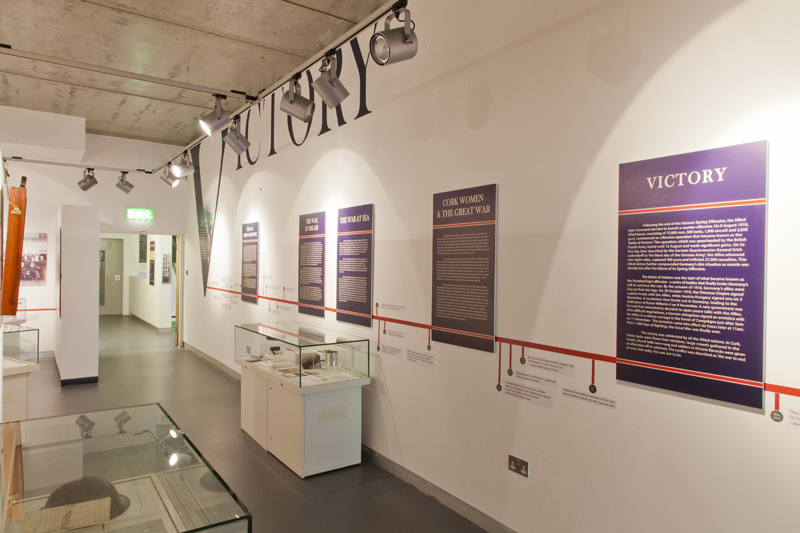 | 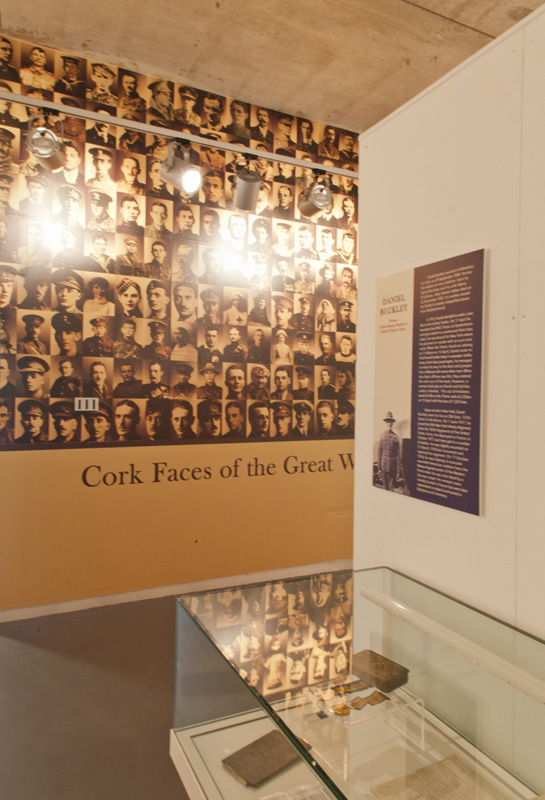 | 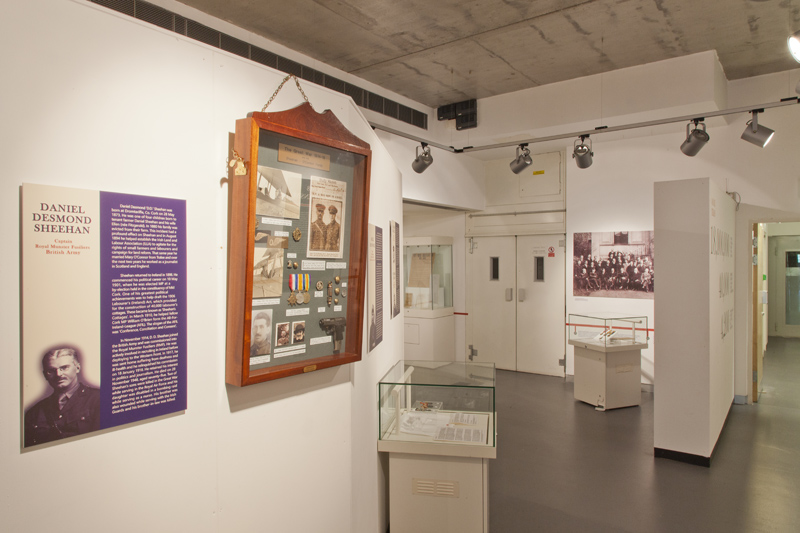 |
This exhibition aims to highlight some of the findings from a recent excavation in Cork, with particular emphasis on the earliest excavated levels dating from the late 11th and the 12th century; the late Viking age or the Hiberno-Norse age - a period when the local cultural sphere experienced a mixture of Scandinavian and native Irish influence. This exhibition places particular emphasis on the wooden structures and items recovered from the excavations.
12th century Cork was essentially a wooden town; all the houses and many of the objects in everyday use were made from wood.
As it was not possible to offer public access to the excavations due to the restrictions pertaining to the construction sites, the exhibition aims to give the public a glimpse at some of the main findings. As the post-excavation analysis is at an early stage, the exhibition offers an archaeological preview which has the potential to be developed and expanded in the future.
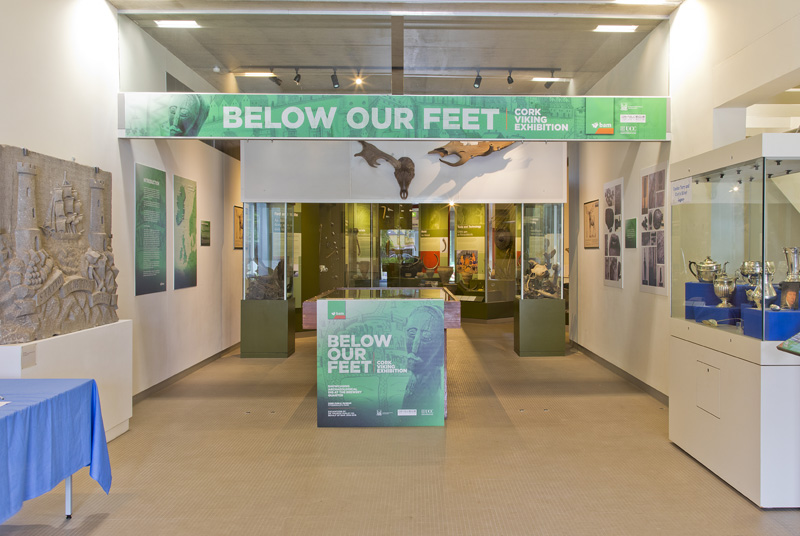 | 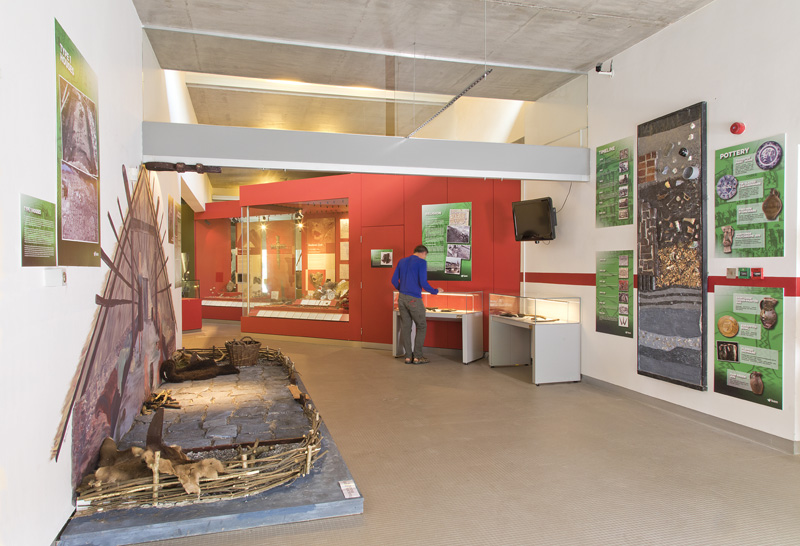 | 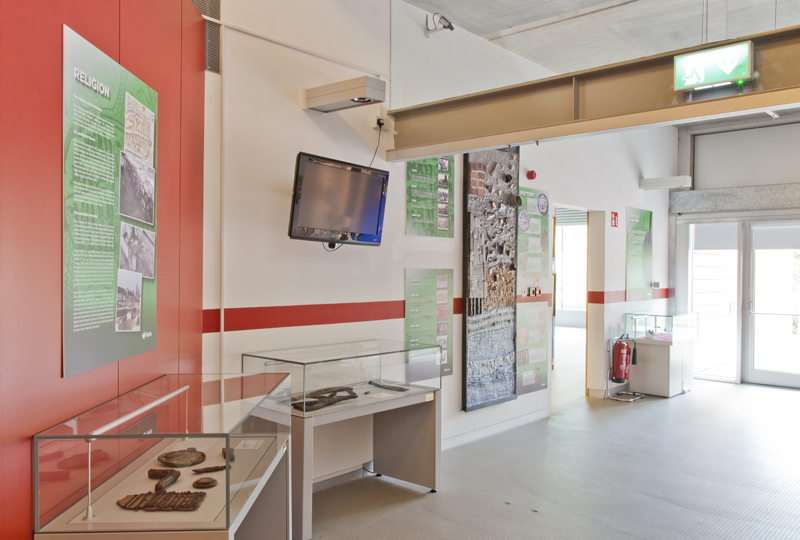 |
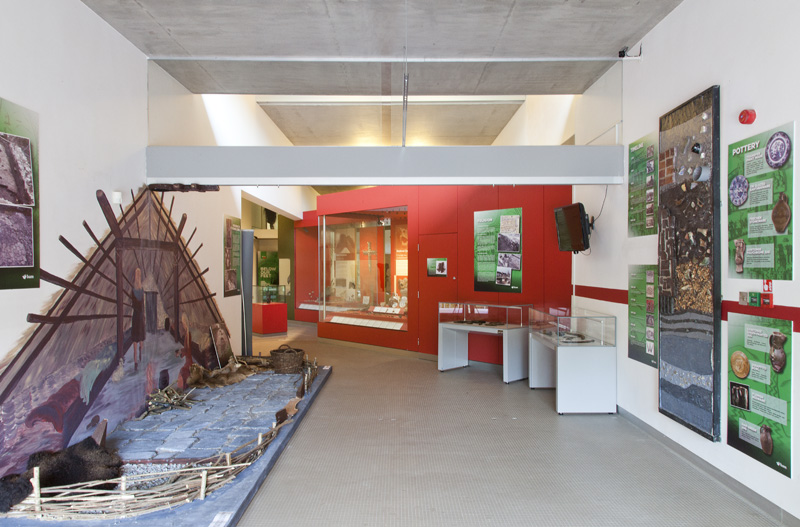 | 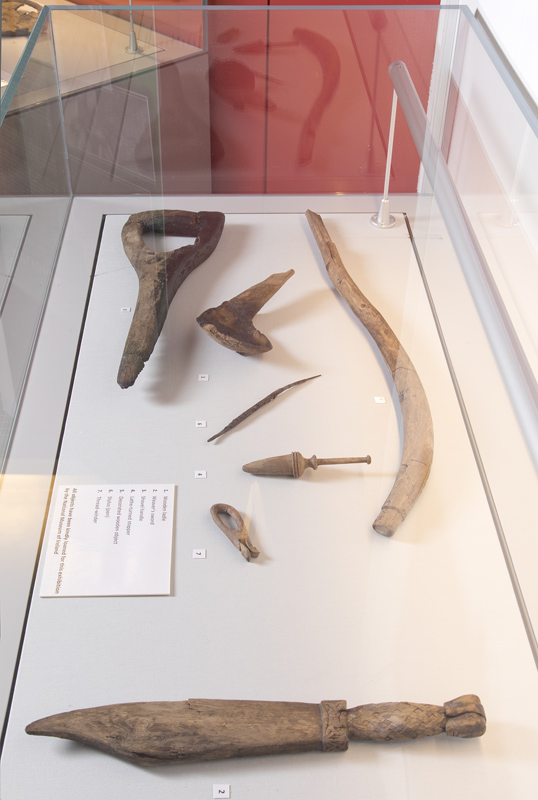 |
In 2018, Cork Public Museum acted as one of the partners in the 'Tools of the Trade' art project that has been running since 2017. The project explores childhood creativity and interesting places of work, and is the brainchild of local artists Leah Murphy and Susie Walsh. This is a school-based programme, which connects schoolchildren with the workplace through art.
Over several months in 2018, 71 pupils from St. Marie’s of the Isle and Sunday's Well Boys and Girls Primary schools worked with the artists. The children taking part had the chance to see behind closed doors in three varied and interesting places of work in Cork City. Apart from the museum, the children also visited the Ceramic Department in the Crawford College of Art and Design on Sharman Crawford St., and the Cork Centre for Architectural Education on Copley St.
Introductory workshops were given where the children were shown tools that are in everyday use in these workplaces. On Monday 16th April, the school classes visited the museum where City Archaeologist Ciara Brett and Museum Curator Daniel Breen spoke to the school children about the work of archaeologists, and what excavated artefacts can reveal about the people who made them. The children could handle and inspect original excavated objects from Garryduff I Ringfort, including the iconic Garryduff Bird.
In a series of fun, interactive and educational art workshops, the children created artworks inspired by the specific activities encountered in each place of work. The artworks were then exhibited at the museum between June and September.
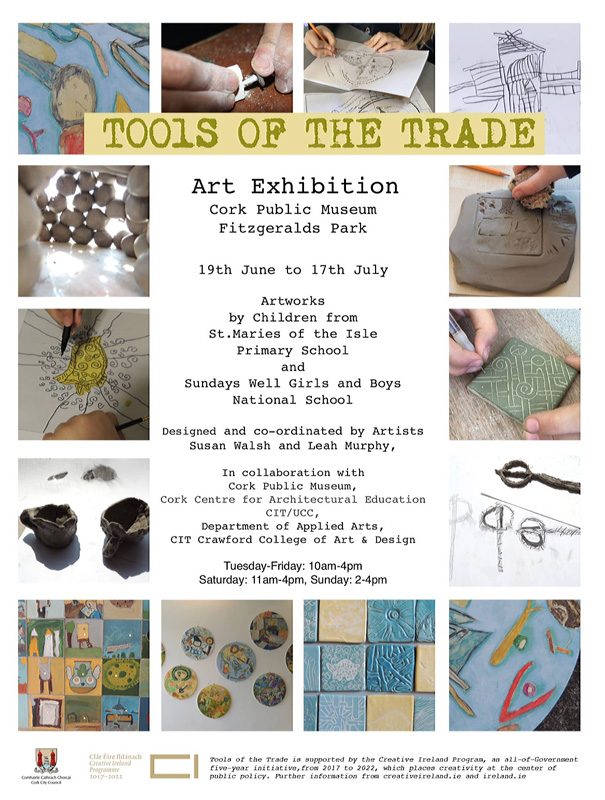 | 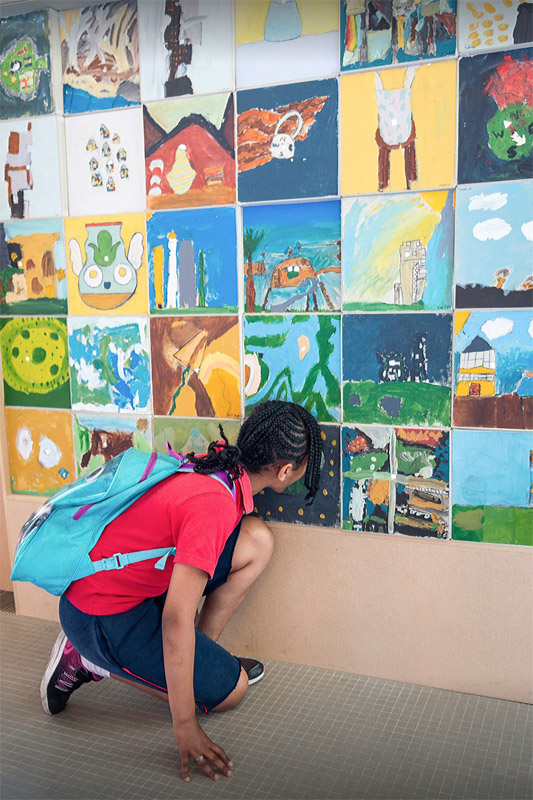 | 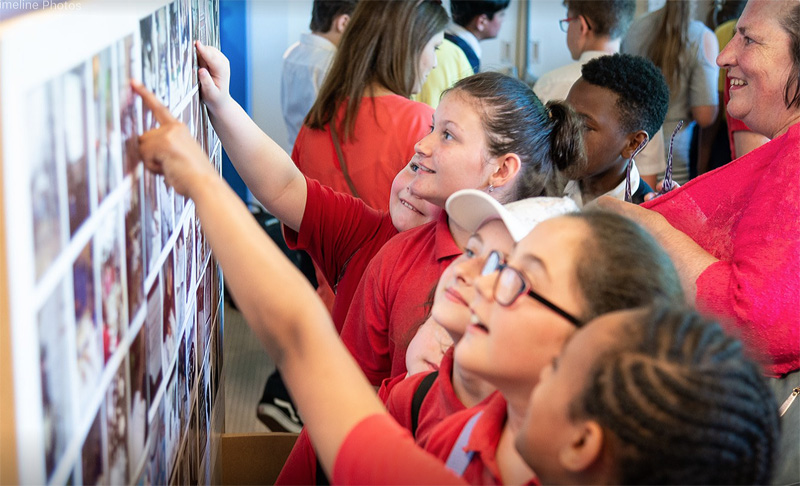 |
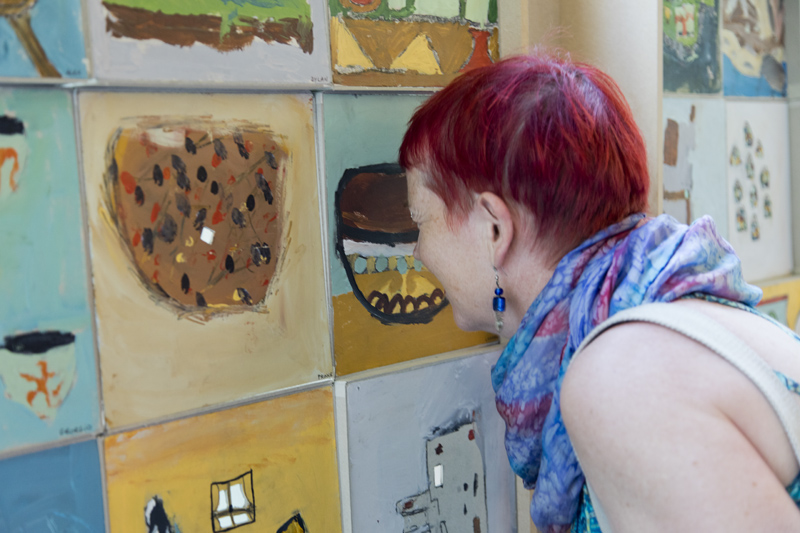 | 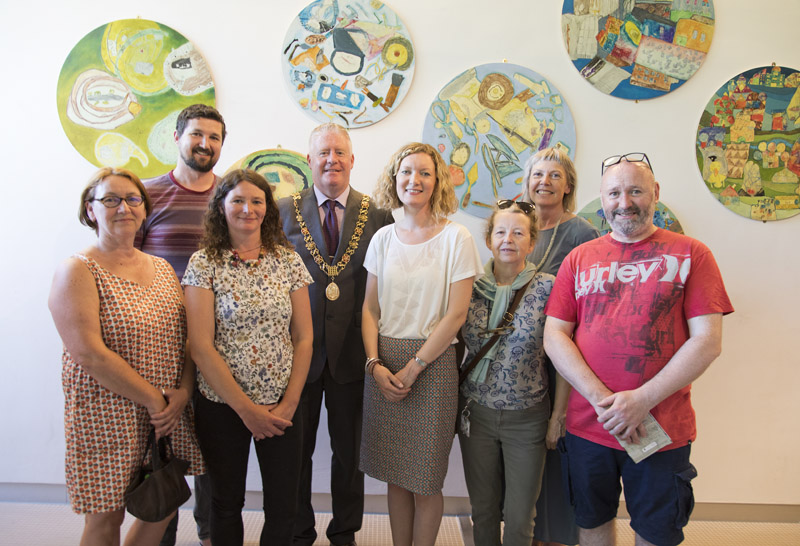 |
Travellers are an ethnic minority group indigenous to the Emerald Isle, with traditions and lifestyles that are rooted in its history.
The 1st of March 2017 was a historic day for the Irish Traveller community. Following a long campaign, the Irish government formally recognised Travellers as an ethnic group.
In a celebration of this historic moment, Cork Public Museum collaborated with the Travellers Visibility Group of Cork and Cork Traveller Women’s Group to highlight their community and the issues that affect them in contemporary society.
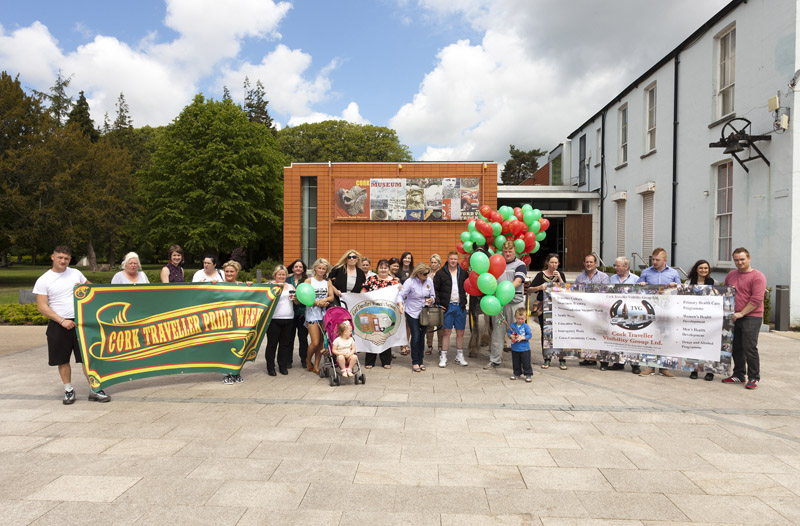 | 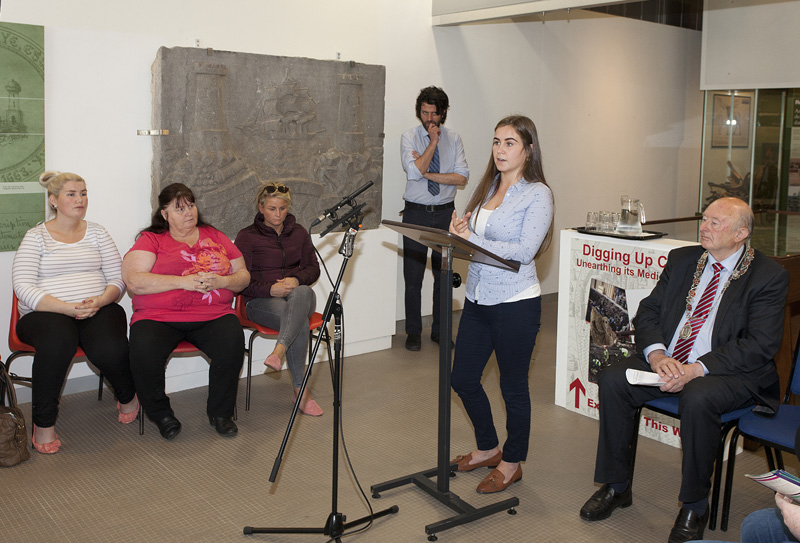 | |
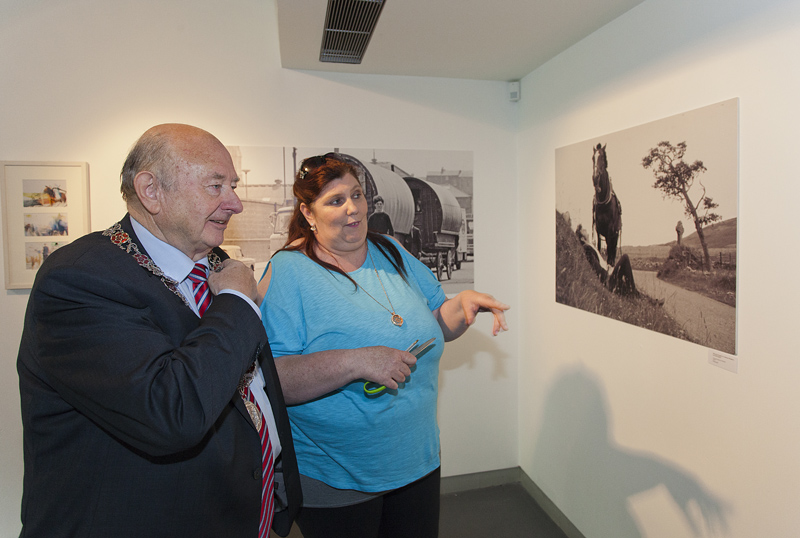 | 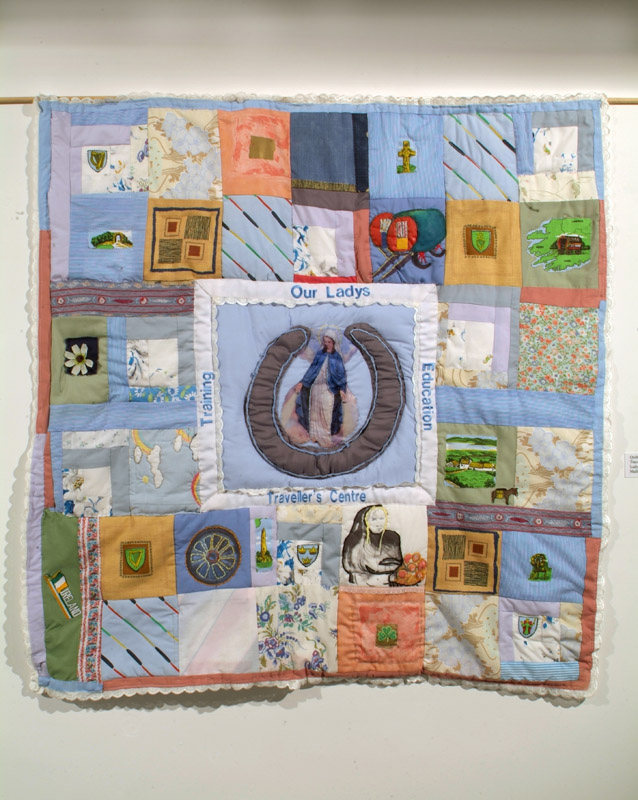 |
This exhibition presents the story of Cork's Jewish Community, from the 1880s to 2016. A small number of Jews who escaped persecution in Russia made their home in Cork's ‘Jewtown’; the Albert Road and Hibernian Buildings area in the south east of the city centre.
By 1939, there was almost 400 Jewish families living and working in Cork.
When the Cork Synagogue closed on the South Terrace in 2016, its custodian, the late Fred Rosehill gave a selection of its artefacts to the museum for permanent display.
We are happy to share, celebrate and acknowledge the important contribution this community has made to the history of this city.
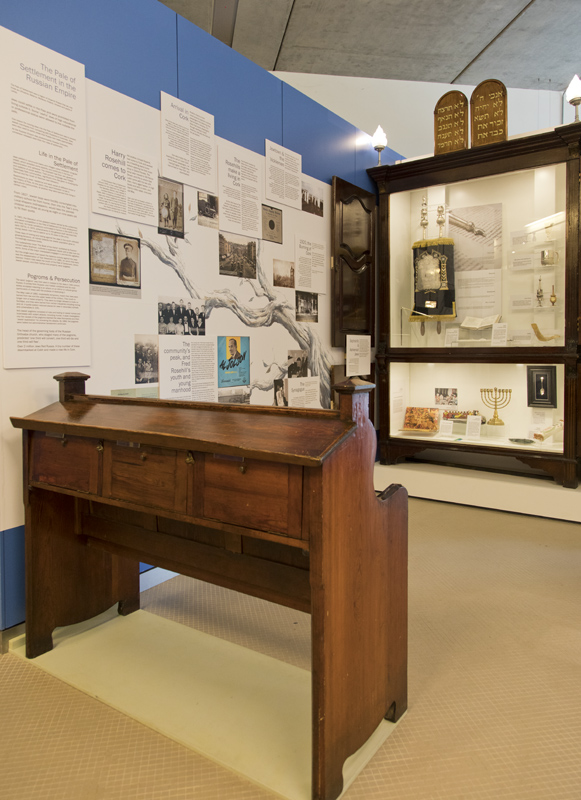 | 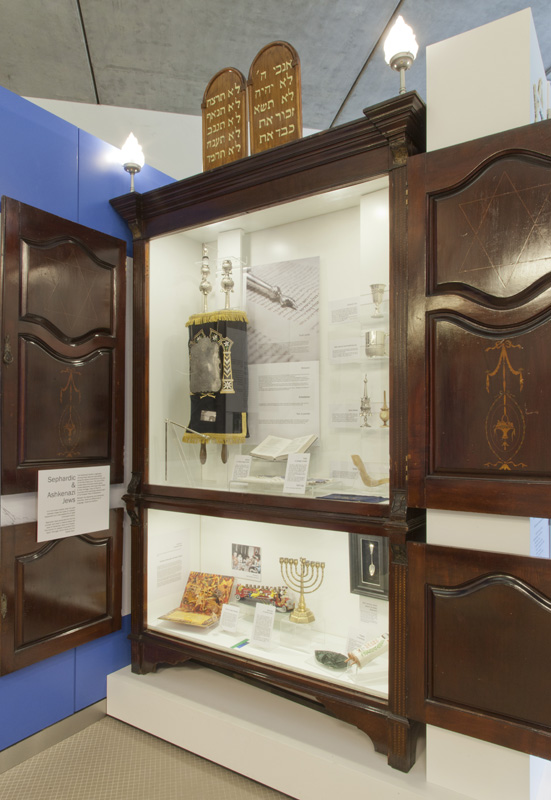 | 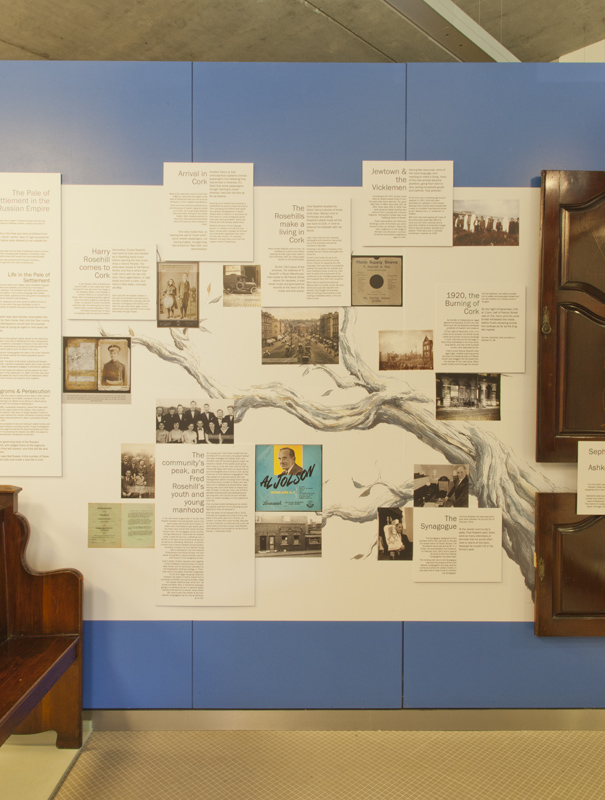 |
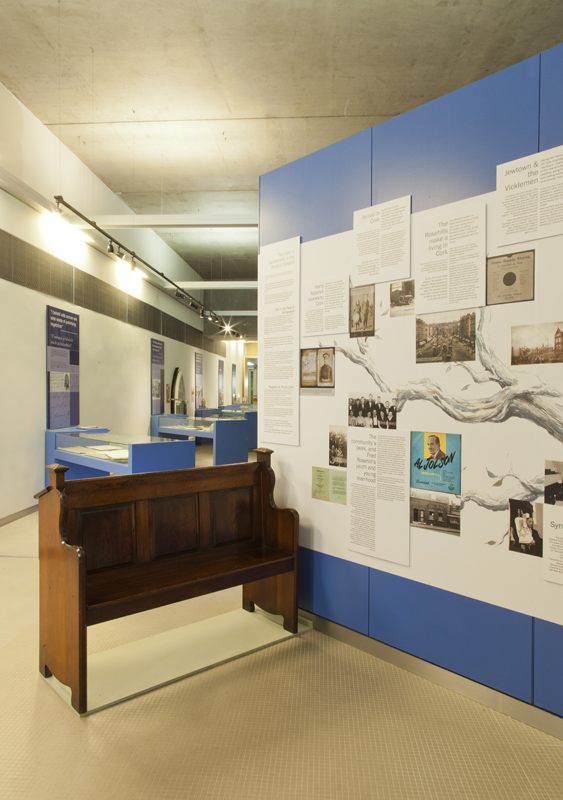 | 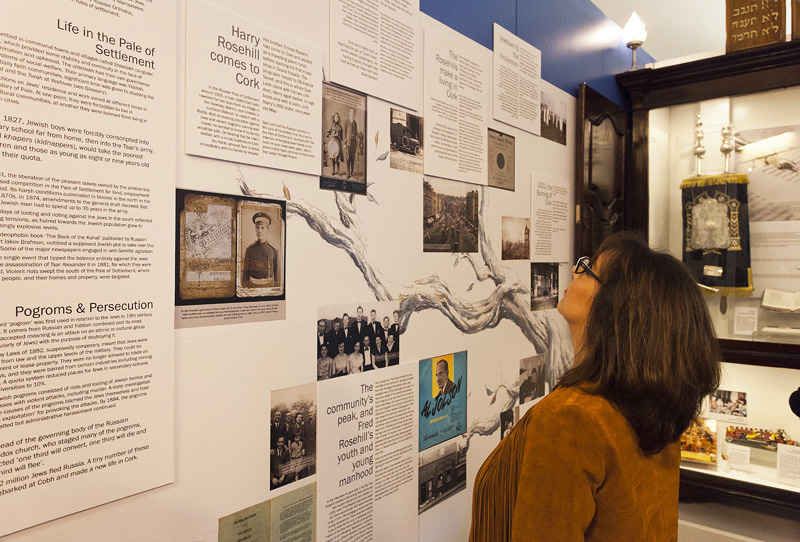 | 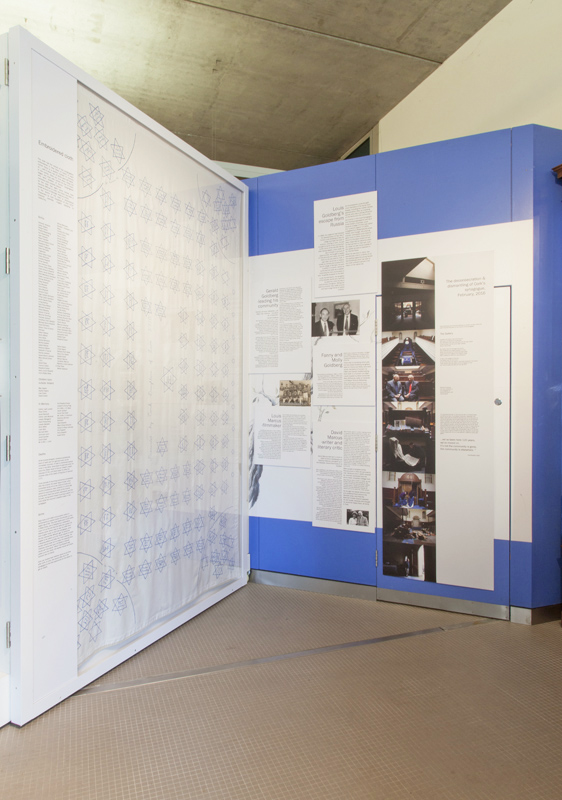 |
In 2017, after 10 years of having the only dedicated permanent exhibition space highlighting Traveller culture in Ireland, we decided to revamp the exhibition to better reflect the concerns of this unique ethnic community in contemporary Ireland.
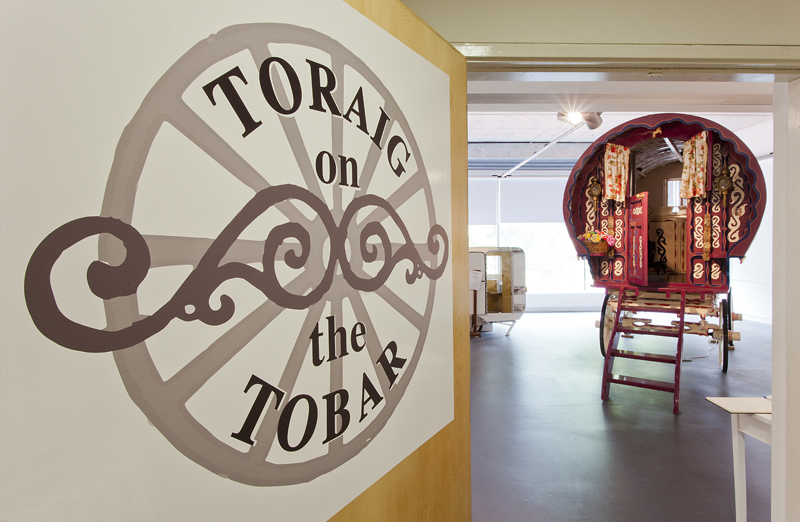 | 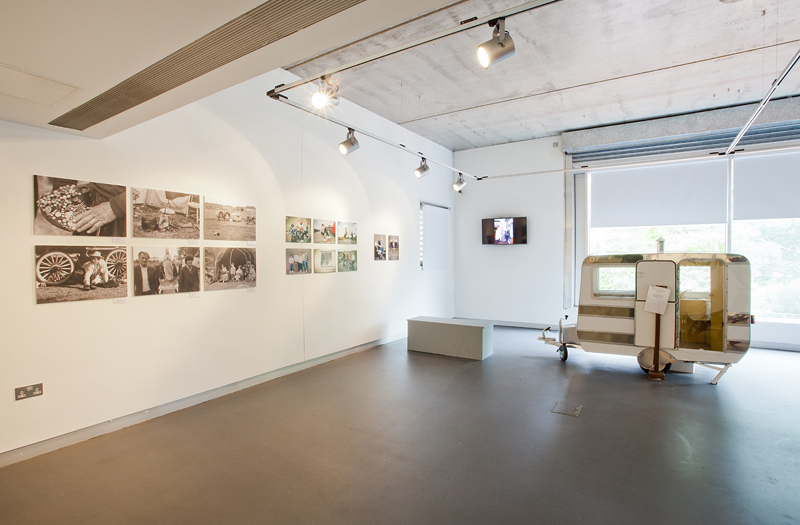 | |
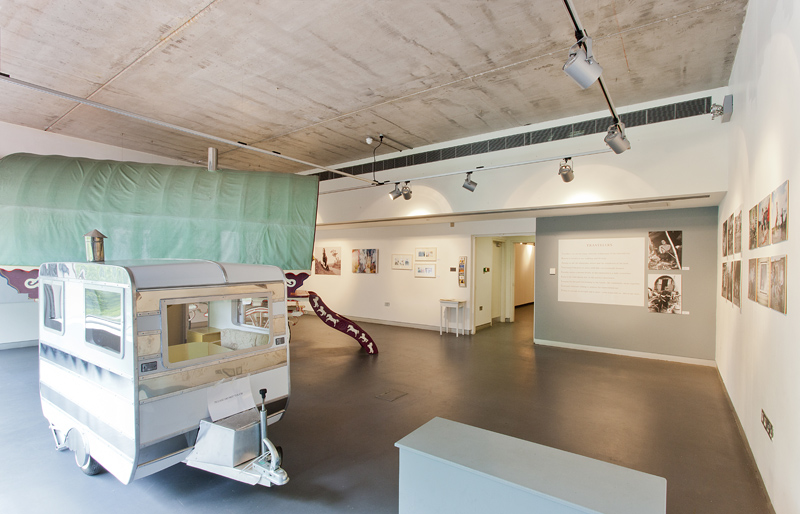 | 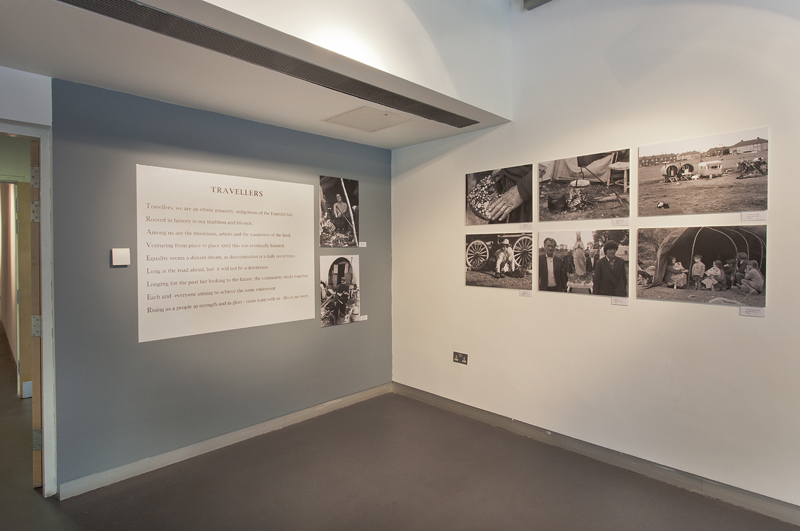 | 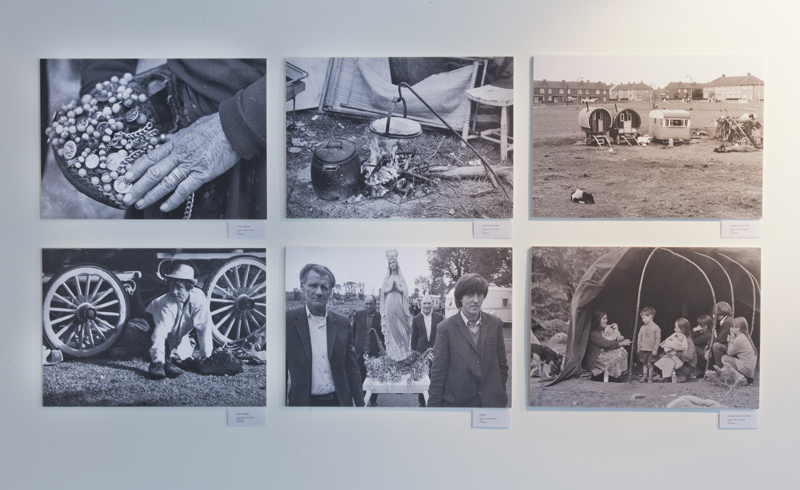 |
The UCC Department of Archaeology and the MA in Museum Studies Class of 2016, as part of their group exhibition project, held an exhibition in partnership with Cork Public Museum in 2016. The exhibition showcased recent finds from excavations on Spike Island and explored its complex and varied history.
This exhibition project focused on the history of Spike Island and it included finds from excavations undertaken on the island in the years since 2013, under the guidance of Dr. Barra O’Donnabháin, lecturer in the Archaeology Department, and in collaboration with The Institute of Field Research in California. Themes touched upon include the earliest monastic settlement on the island, and the island's various uses as a military fortification and prison complex in the 19th and 20th centuries, culminating in the recent excavations of the site. The exhibition made use of objects, text panels, interactive elements and an audio-visual presentation to engage the visitor and communicate the complex history of Spike Island.
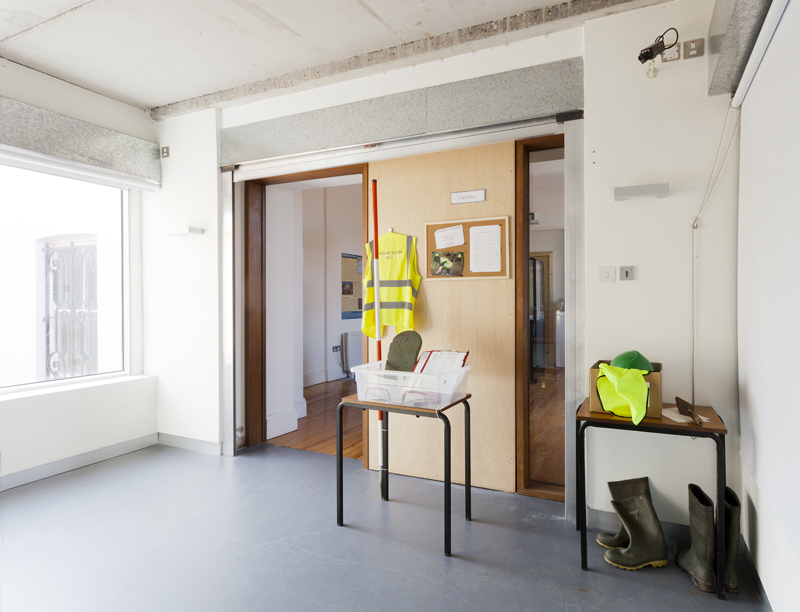 | 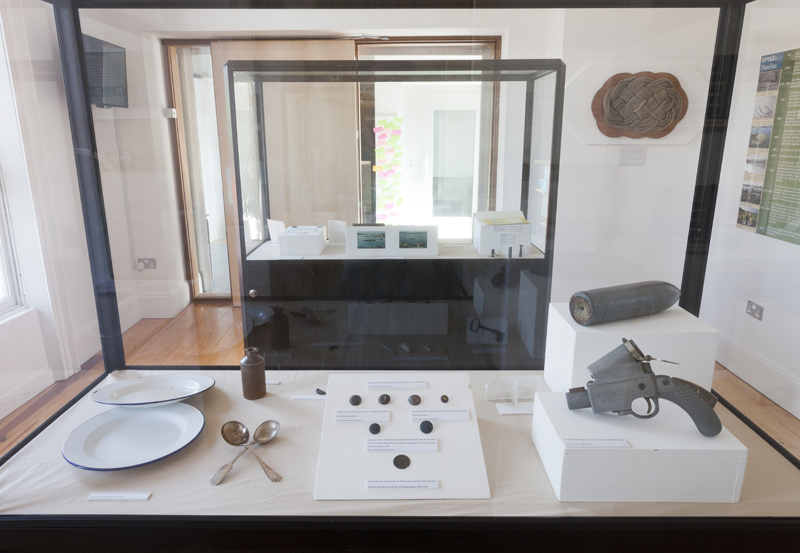 |
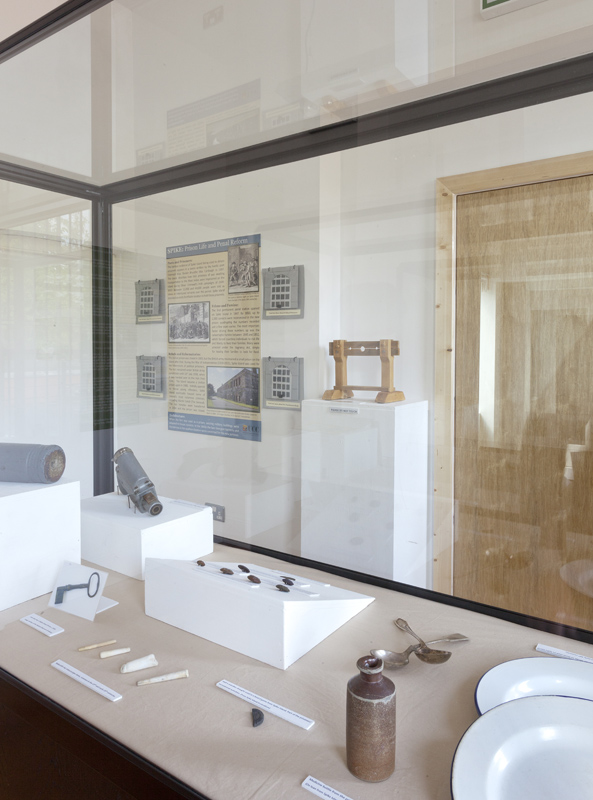 | 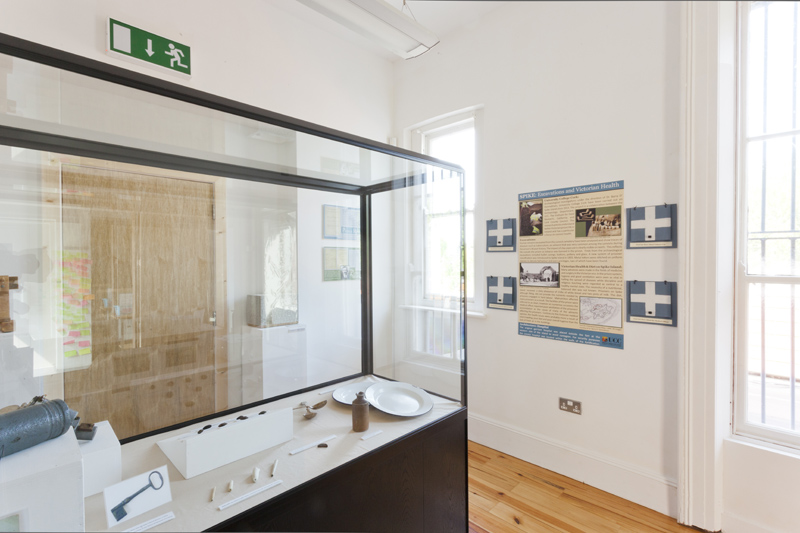 |
In this exhibition, Cork Public Museum aimed to portray the background, progression, aftermath and legacy of the Rising in Cork through the personal testimonies, written documents and artefacts left behind by the participants. A key aspect of the exhibition was the exploration of the oft-forgotten stories of twelve Cork born men who took part in the fighting in Dublin. The most tragic of these stories belongs to West-Cork native, Sean Hurley, who was killed in fighting near the Four Courts. He was the only Cork man killed during the conflict. This exhibition therefore seeks to bring to life, through personal first-hand accounts, the contribution made by Corkonians to the Rising.
Though no fighting took place in Cork, there was a tense standoff between the Volunteers and British authorities at Volunteer Hall on Sheares Street during Easter Week. It was eventually resolved peacefully, and the Cork Volunteers vowed to never be left on the sidelines again. The lack of action during 1916 certainly played a large part in how the War of Independence was eventually conducted in County Cork, resulting in some of the heaviest and bloodiest fighting taking place here during the 1919-1921 period.
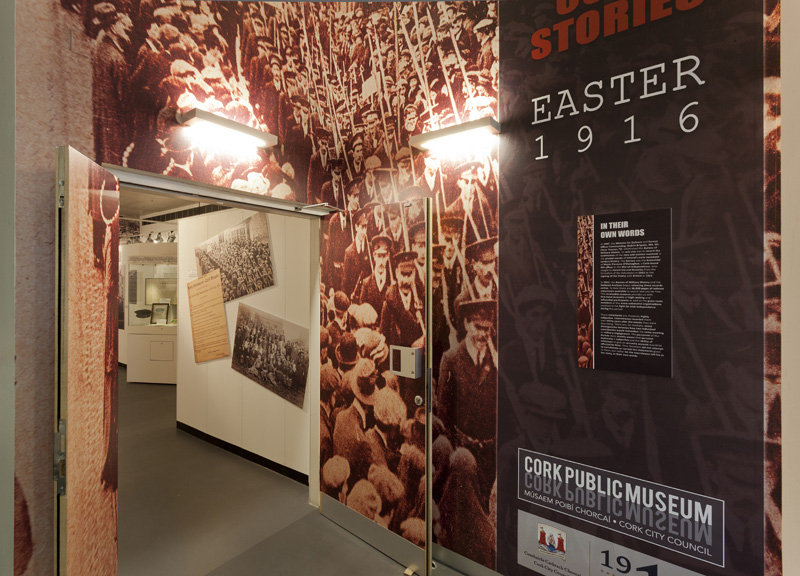 | 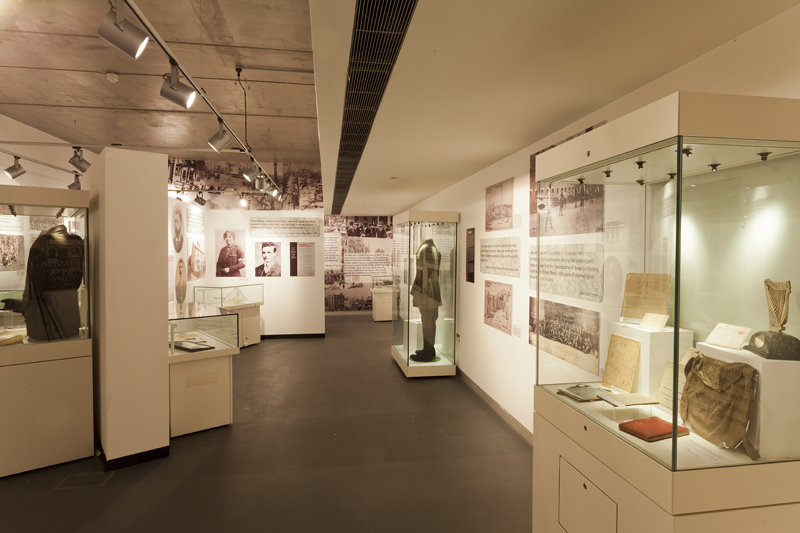 |
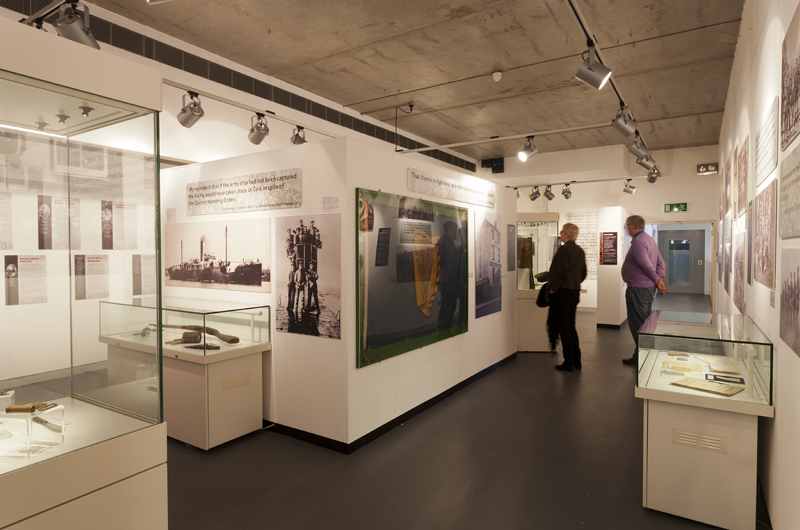 | 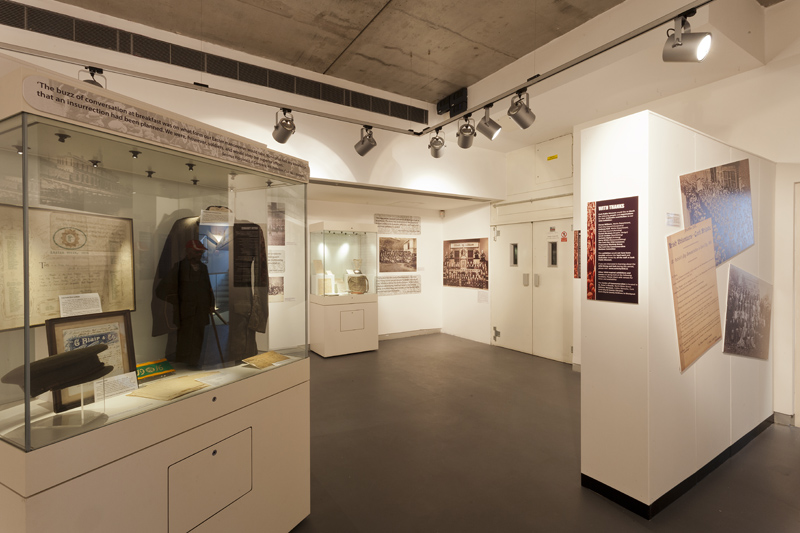 |
In commemorating the participation of Cork people in the Great War, a full scale trench was re-created for one of the exhibition spaces within the museum. The exhibition was held for the same duration as the actual war.
Working with expert model maker Keith Donnelly, who worked on Game of Thrones, a full size model of a WWI-era trench and an officers' ancillary quarters was installed in the museum.
The Great War was one of the defining moments of world history in modern times.
As Ireland was still part of the British Empire then, many Corkonians enlisted to fight in the conflict. From gas attacks, trench foot, constant bombardment and the ever present rain of bullets from machine guns, life on the front lines was very precarious and short.
In installing the Trench, we hoped to give the public a taste of what trench warfare was really like 100 years ago.
As a symbol of solidarity with those who gave their lives, the Trench was ceremoniously closed on Armistice Day on 11th Nov 2018 with a bugler from Collins' Barracks to play the soldier's ‘Last Post’.
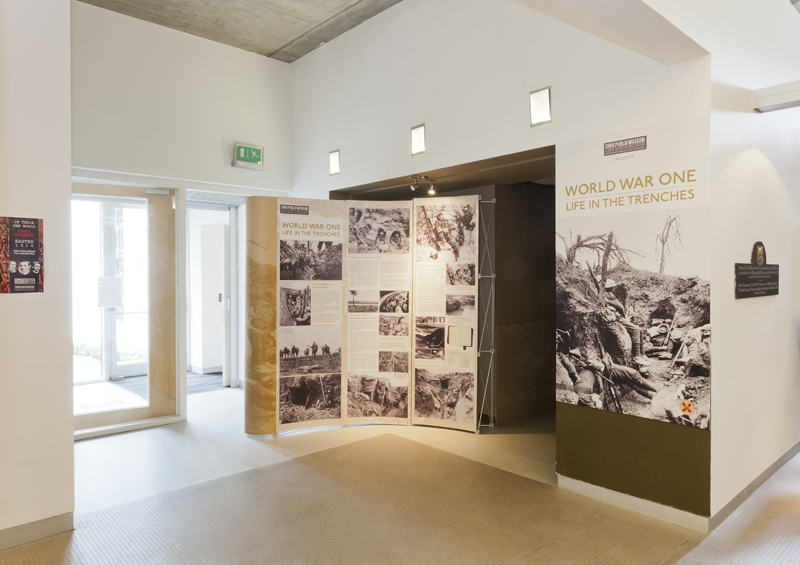 | 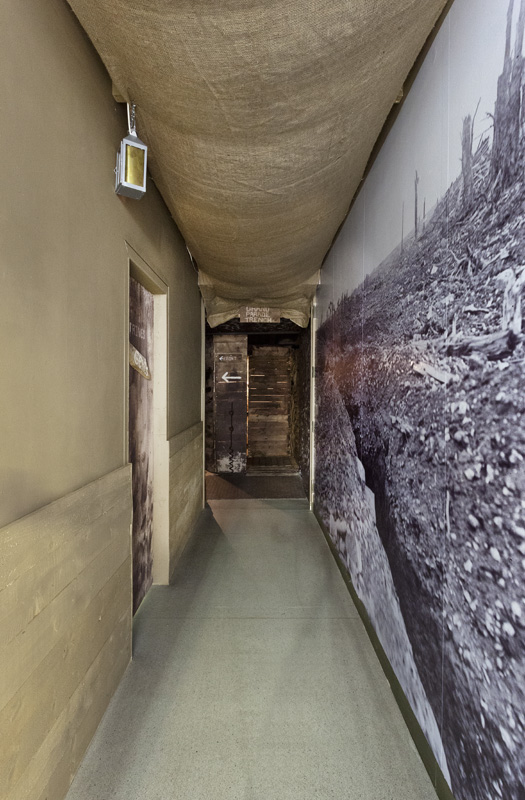 | 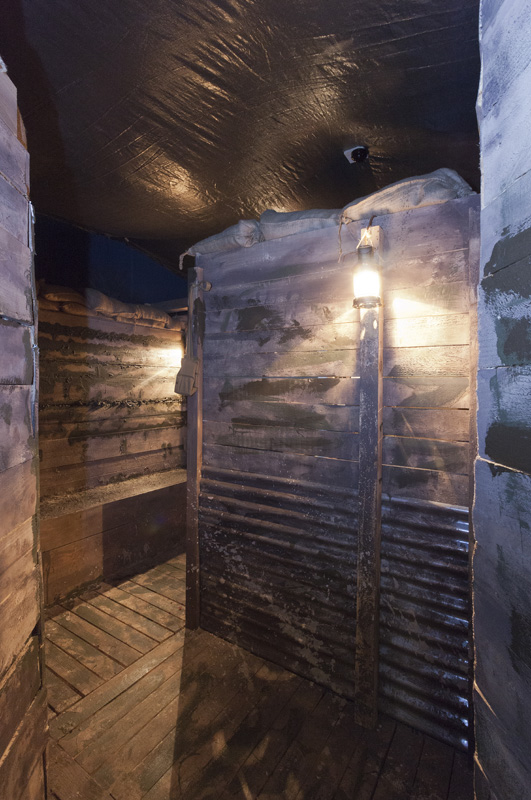 |
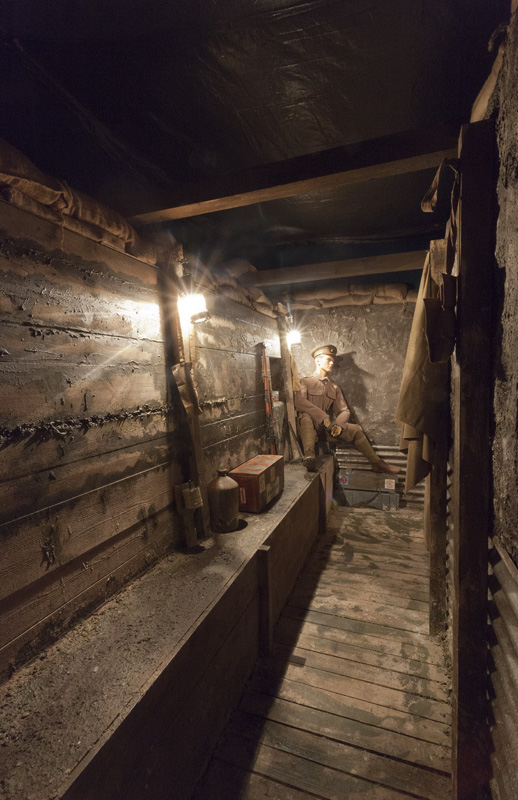 | 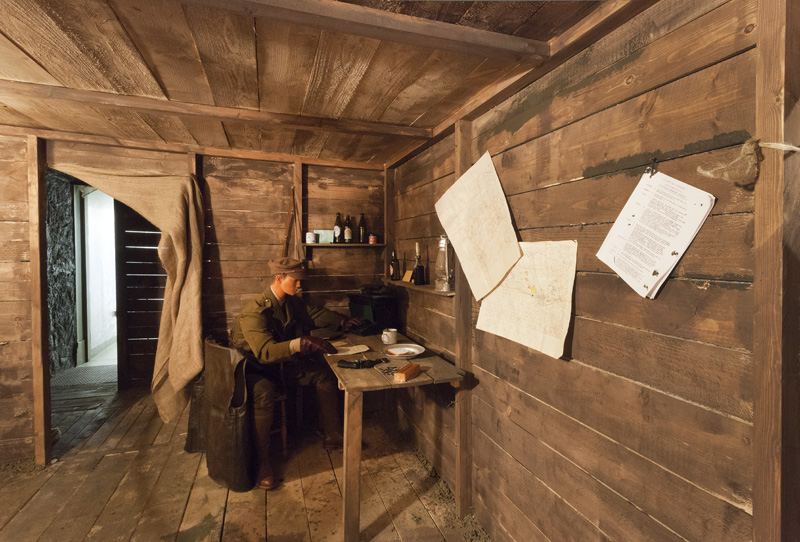 | 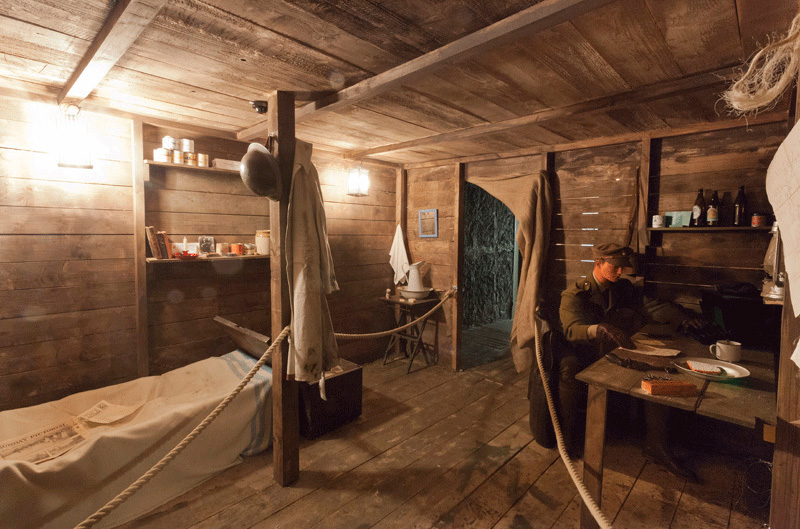 |